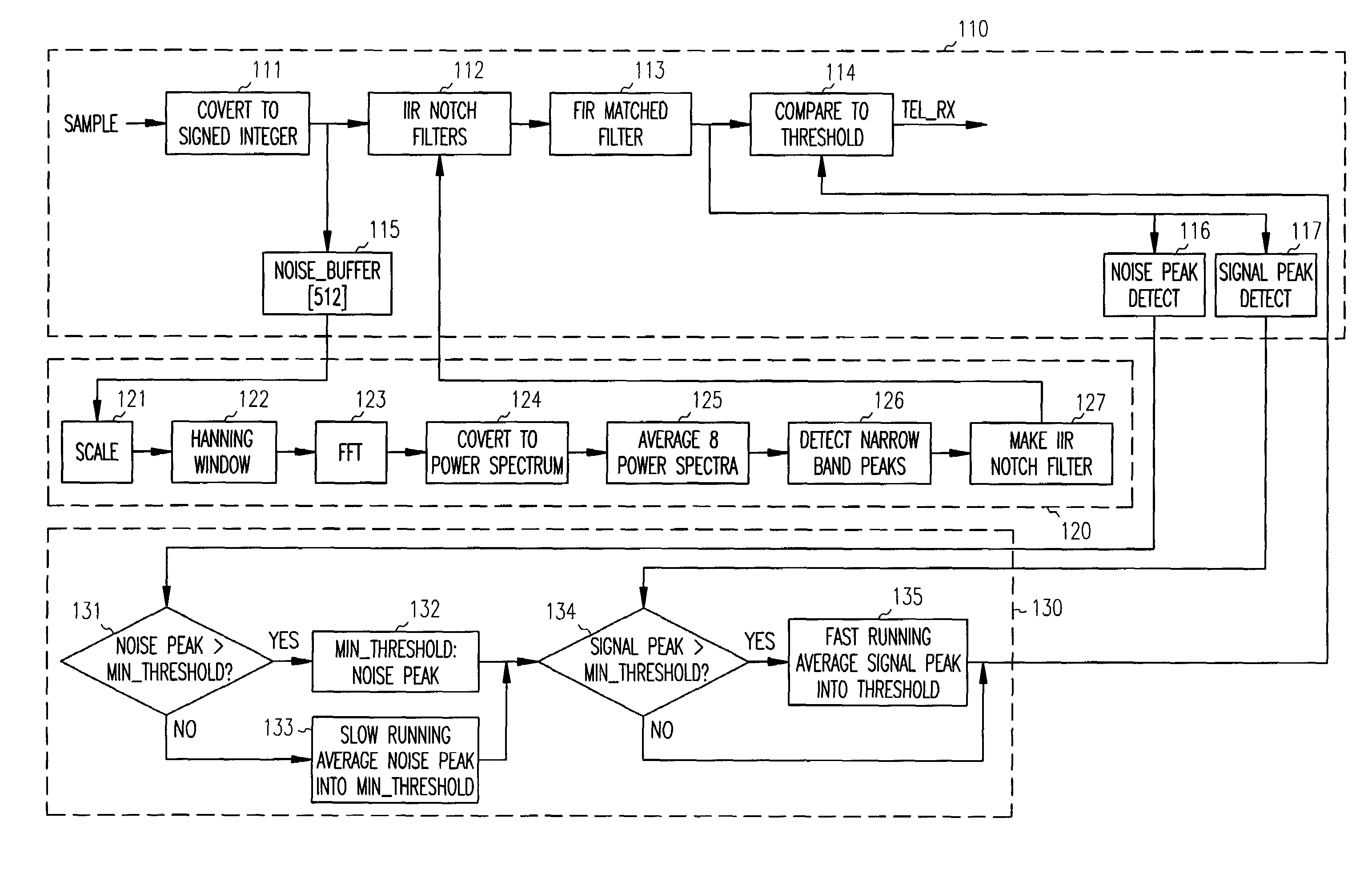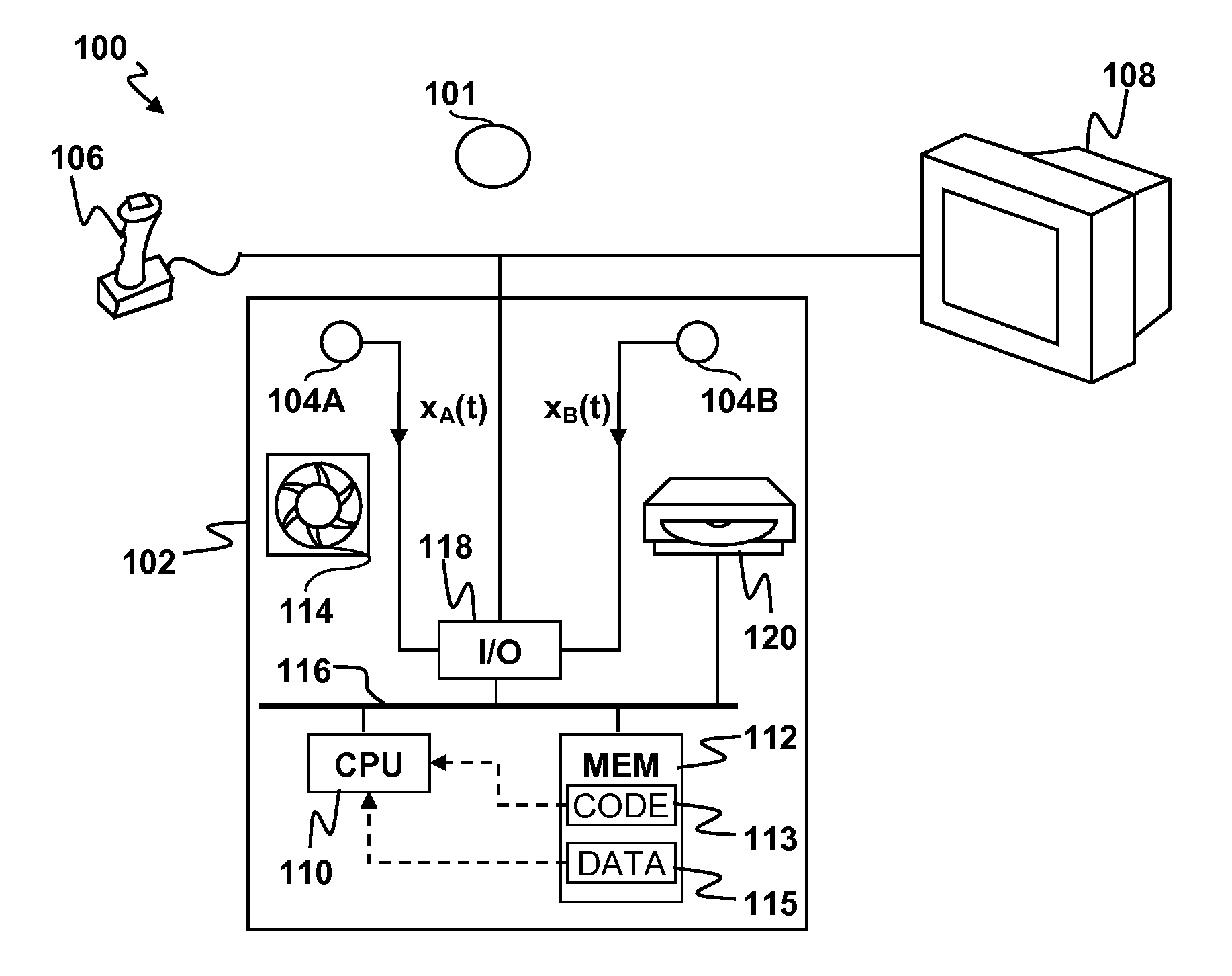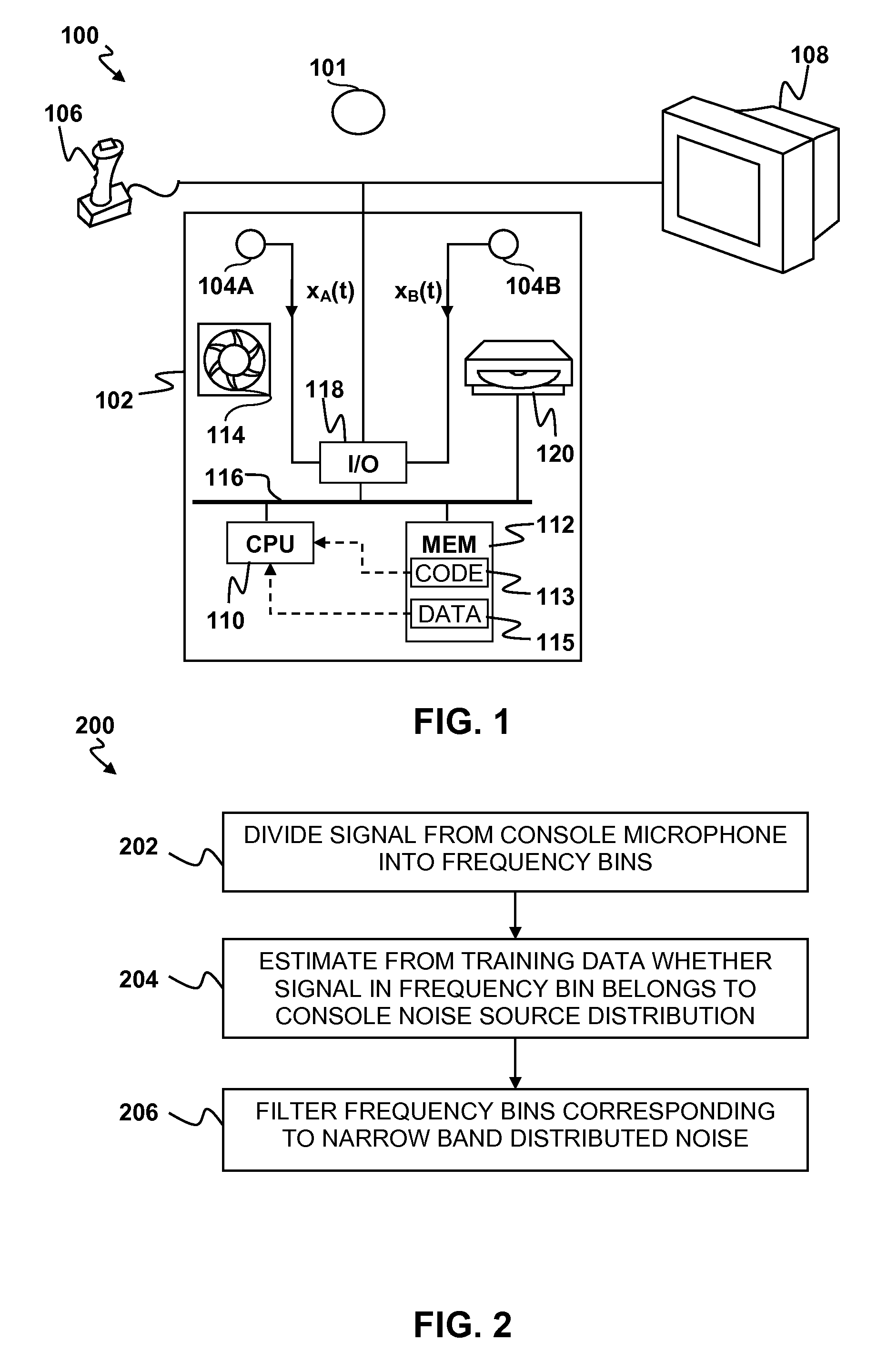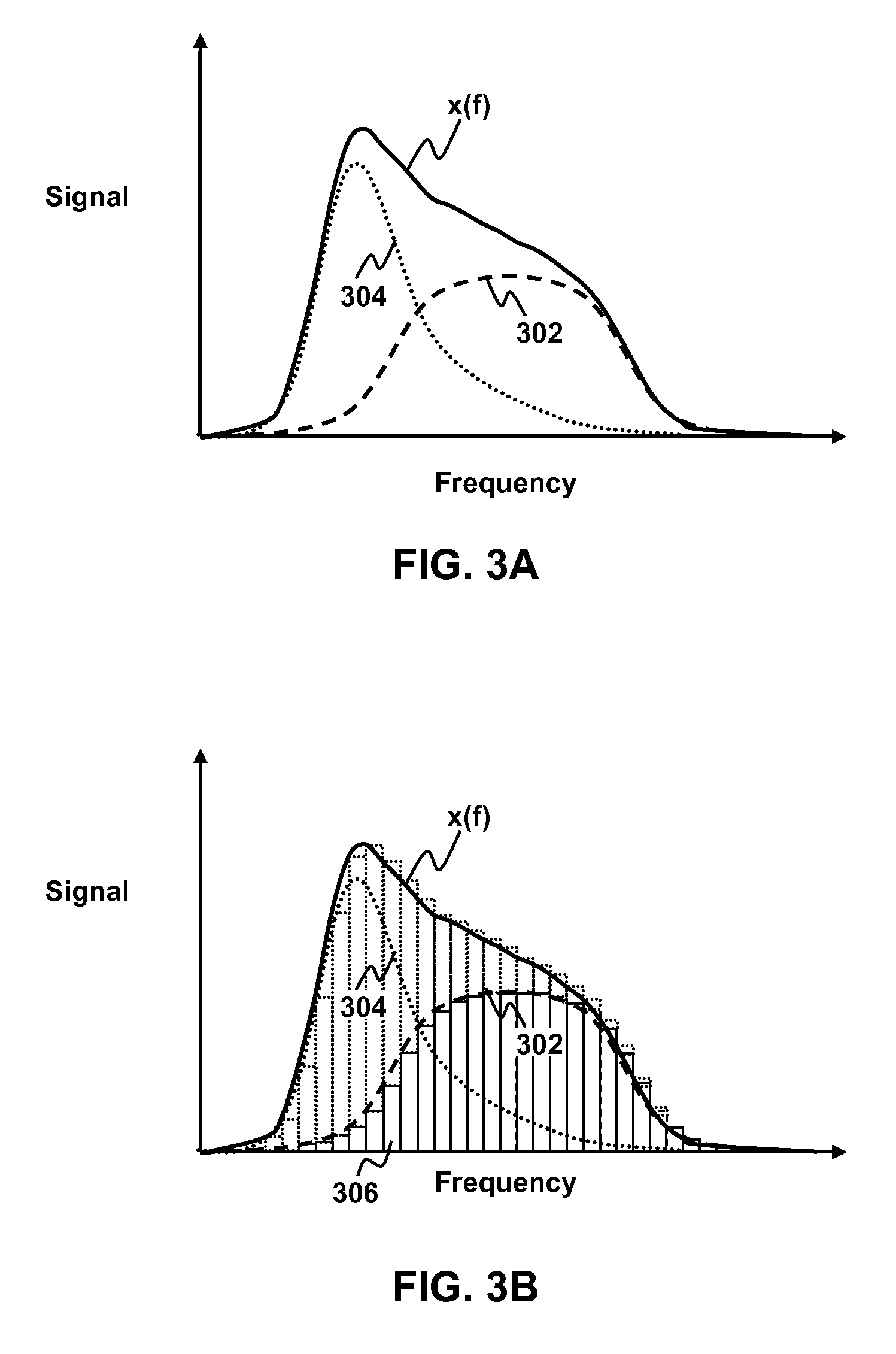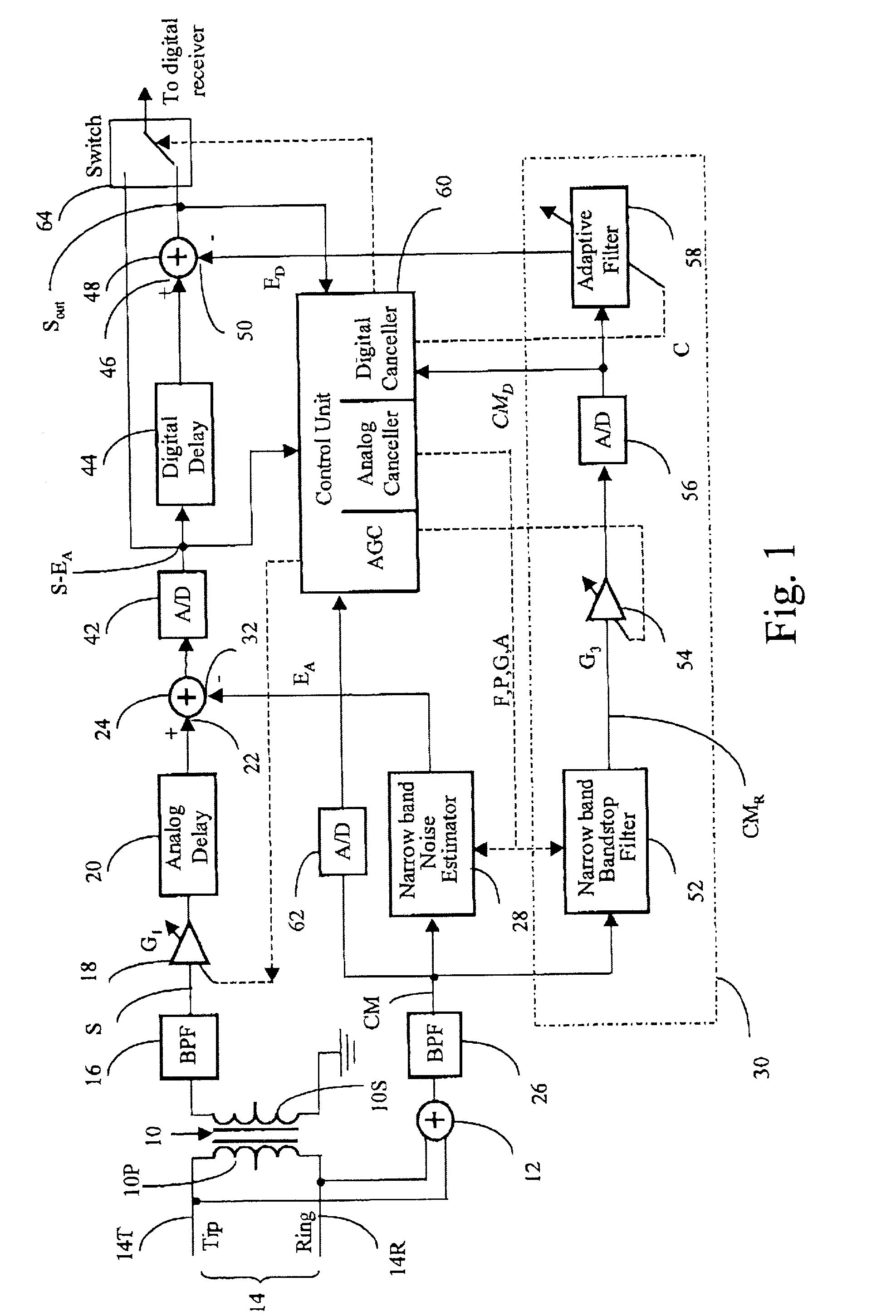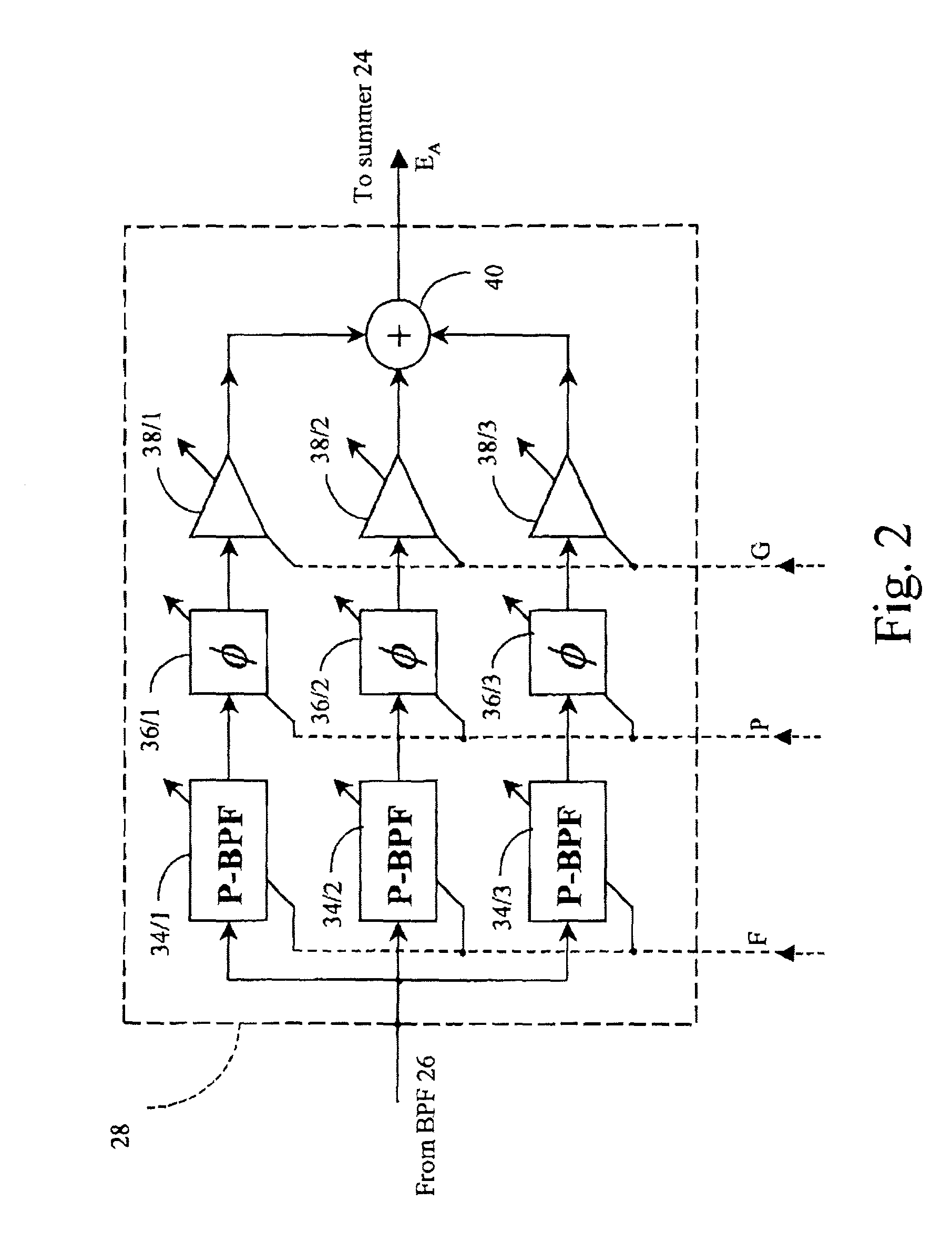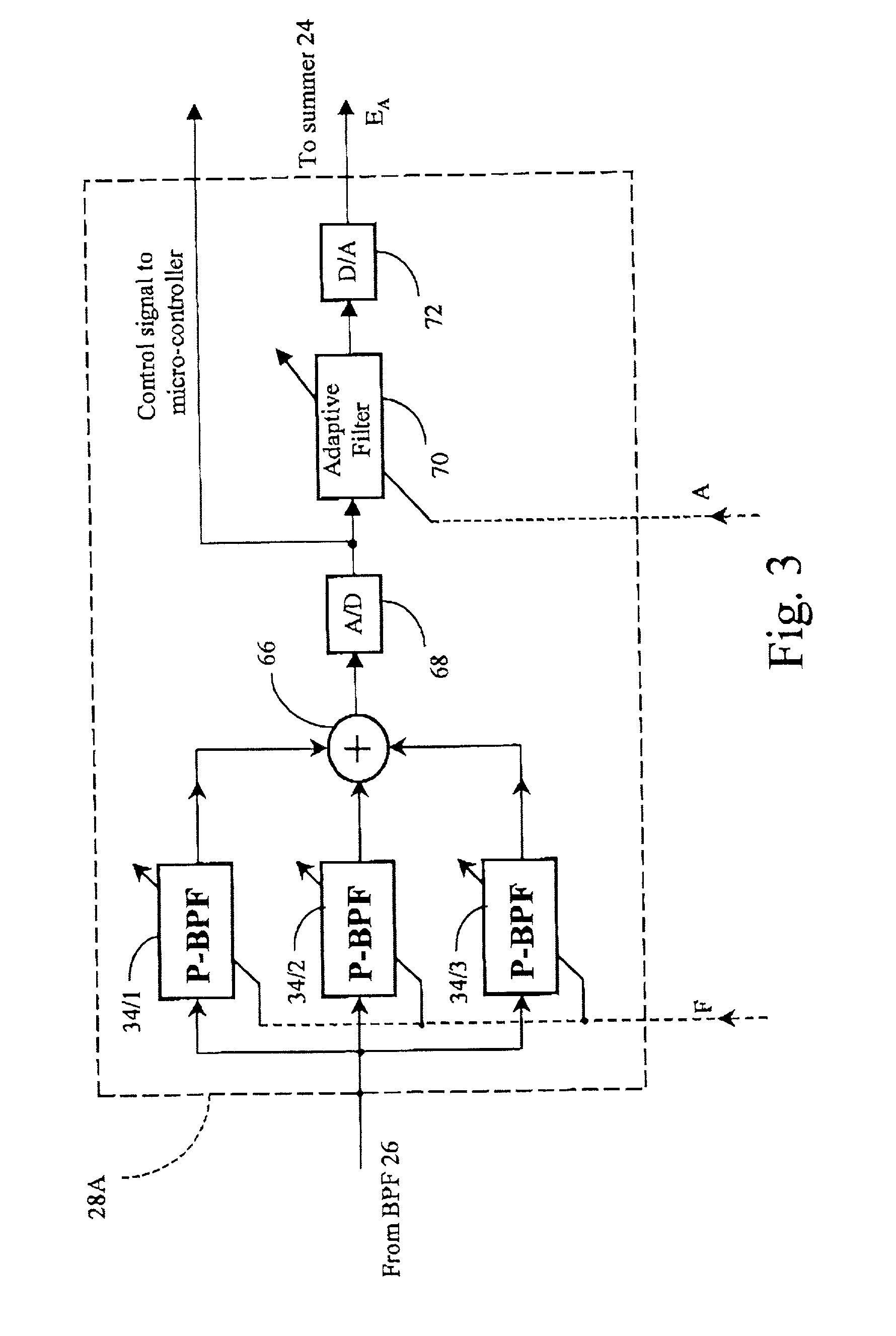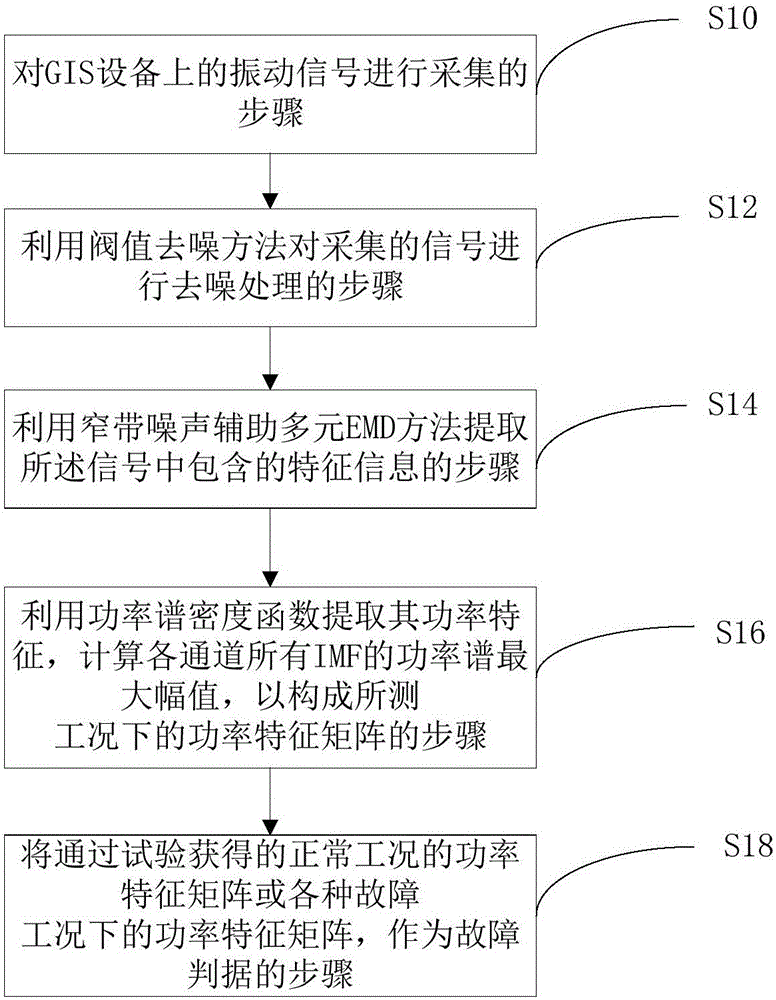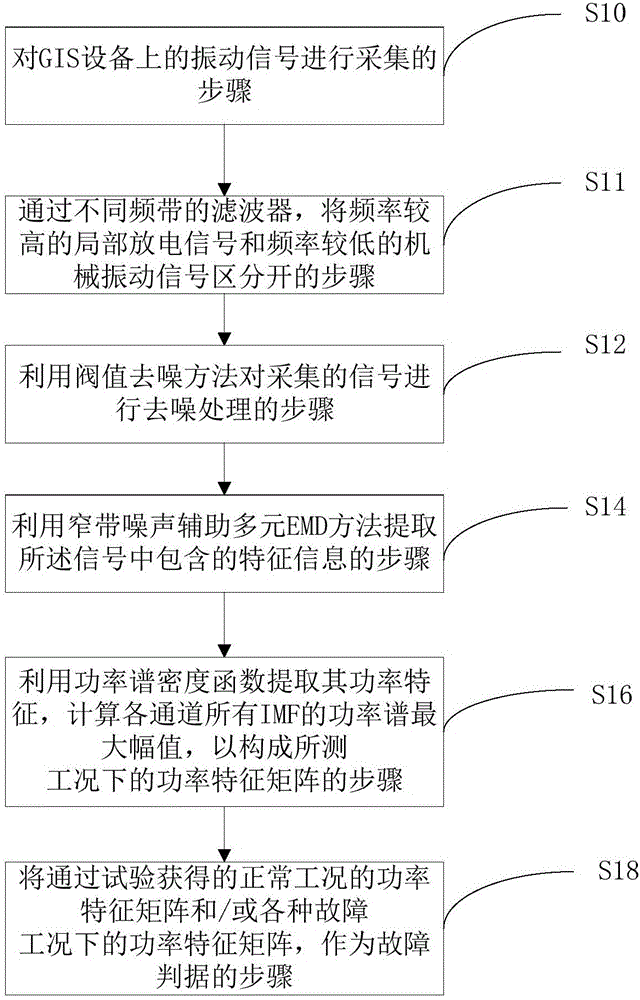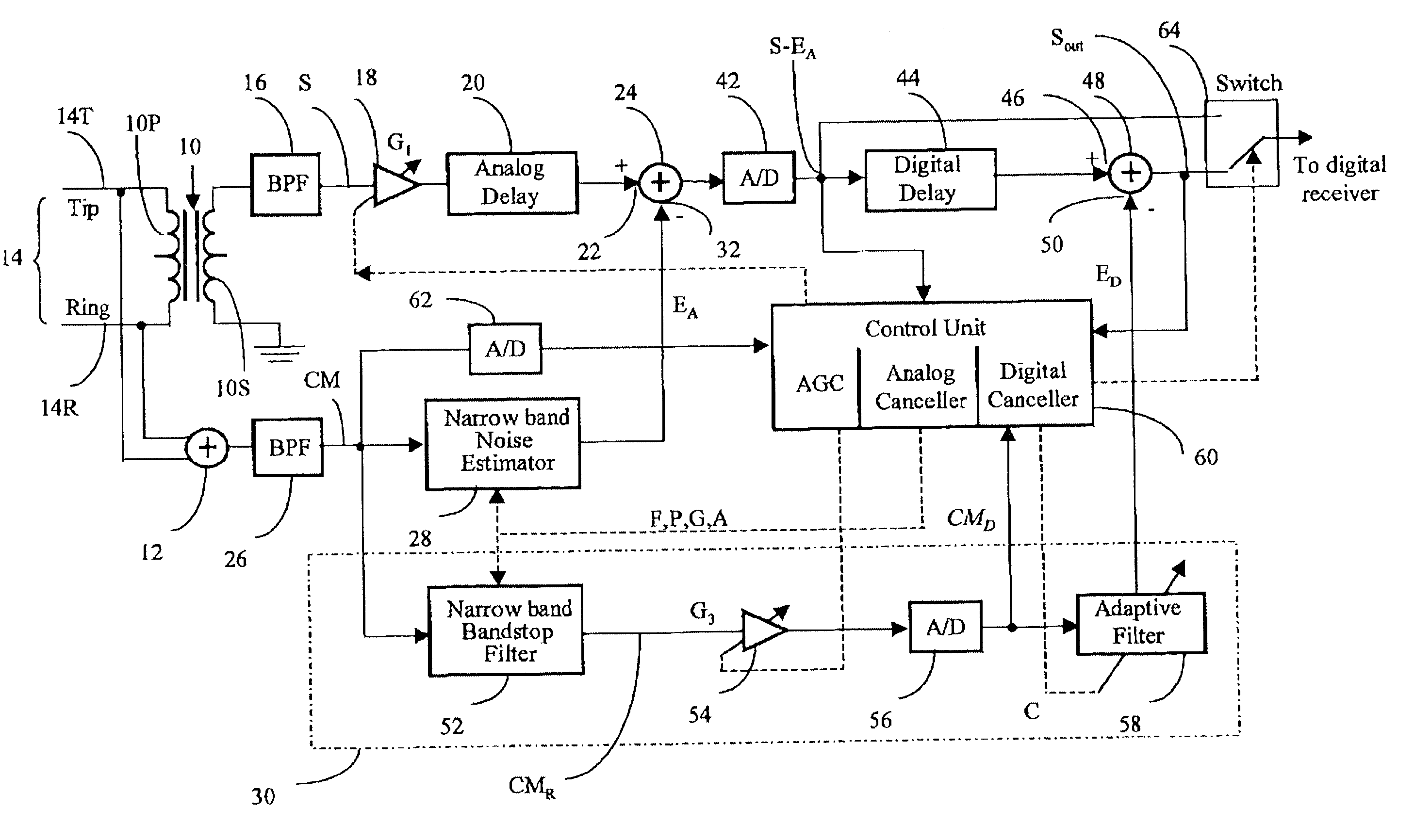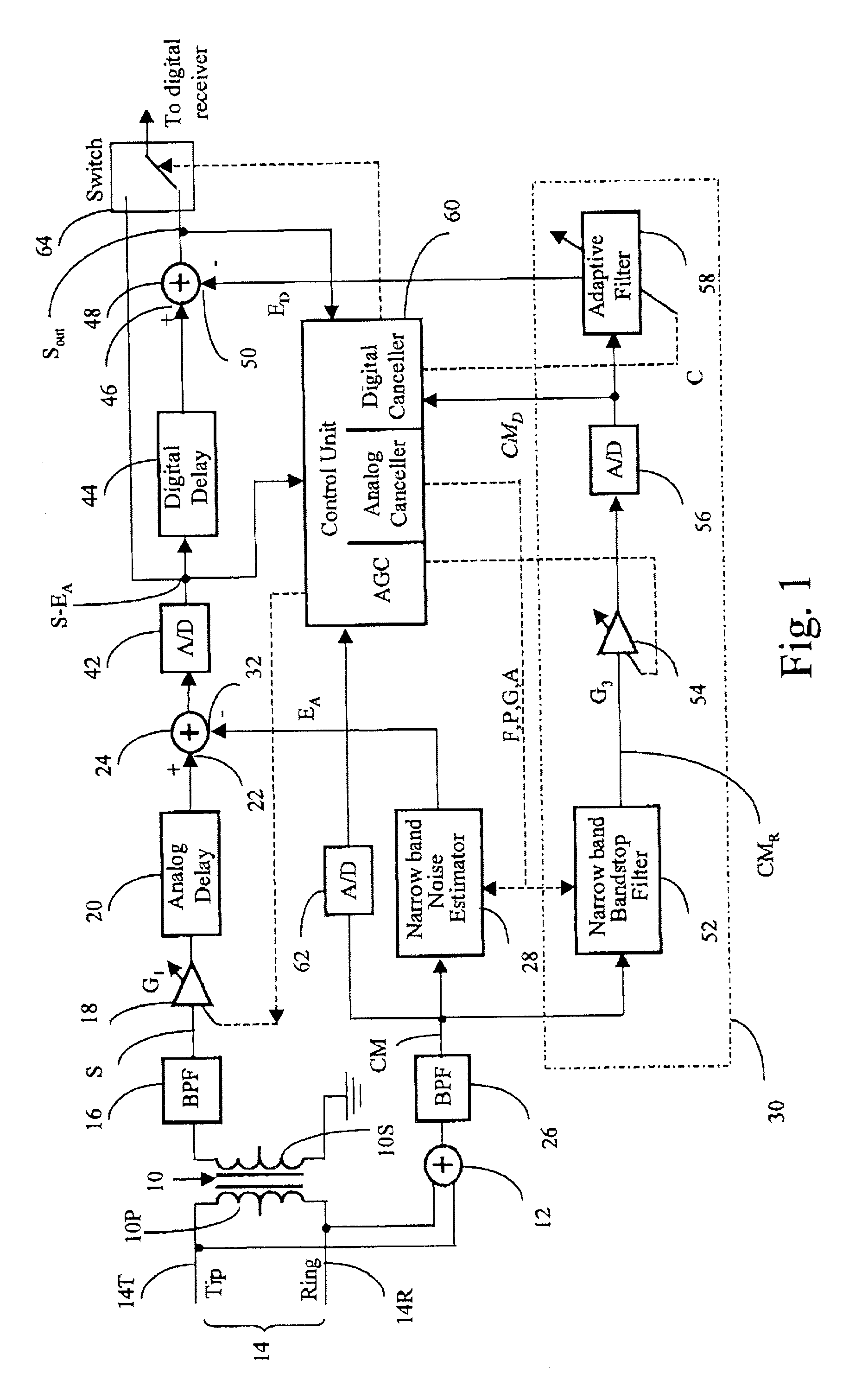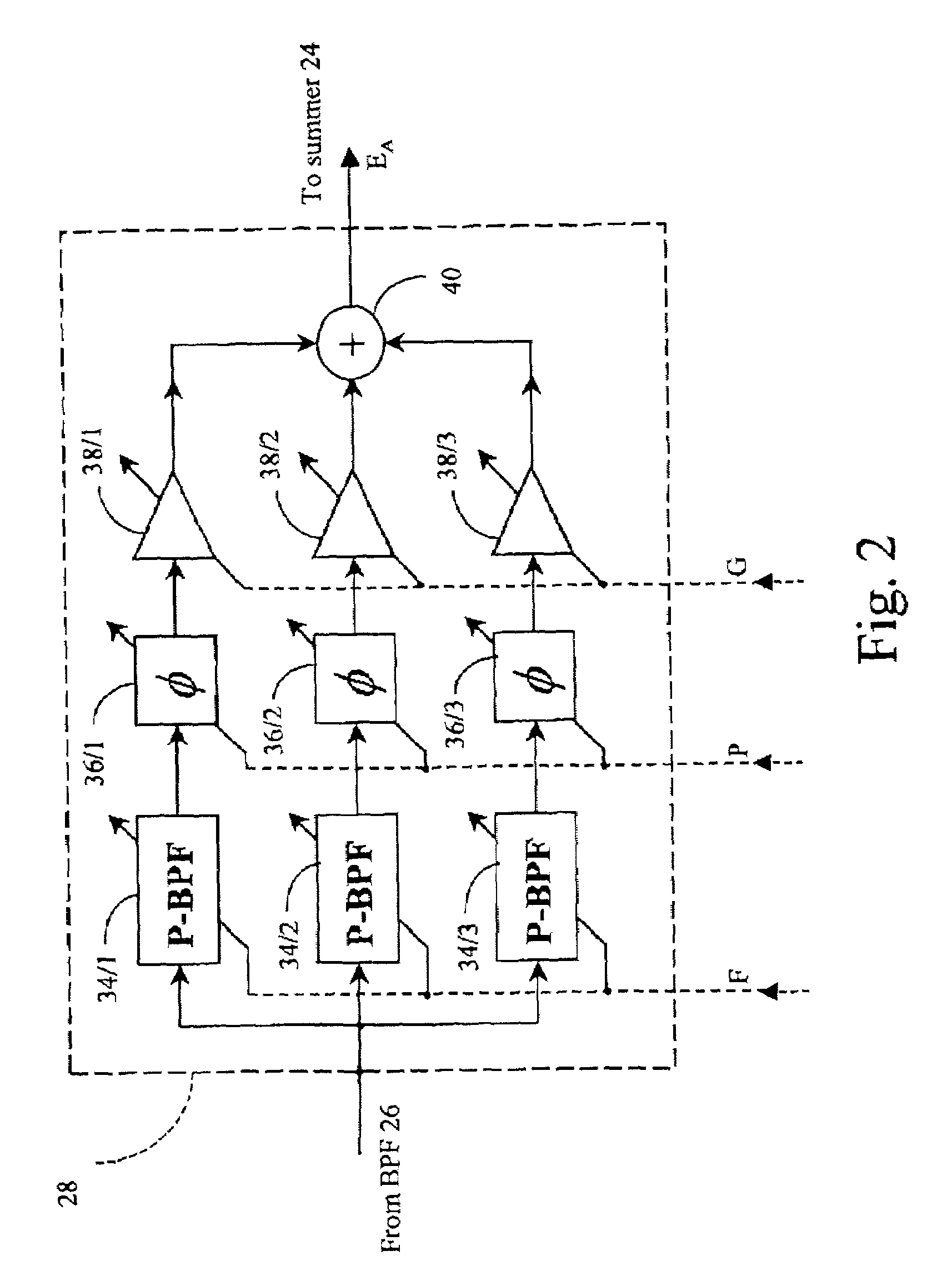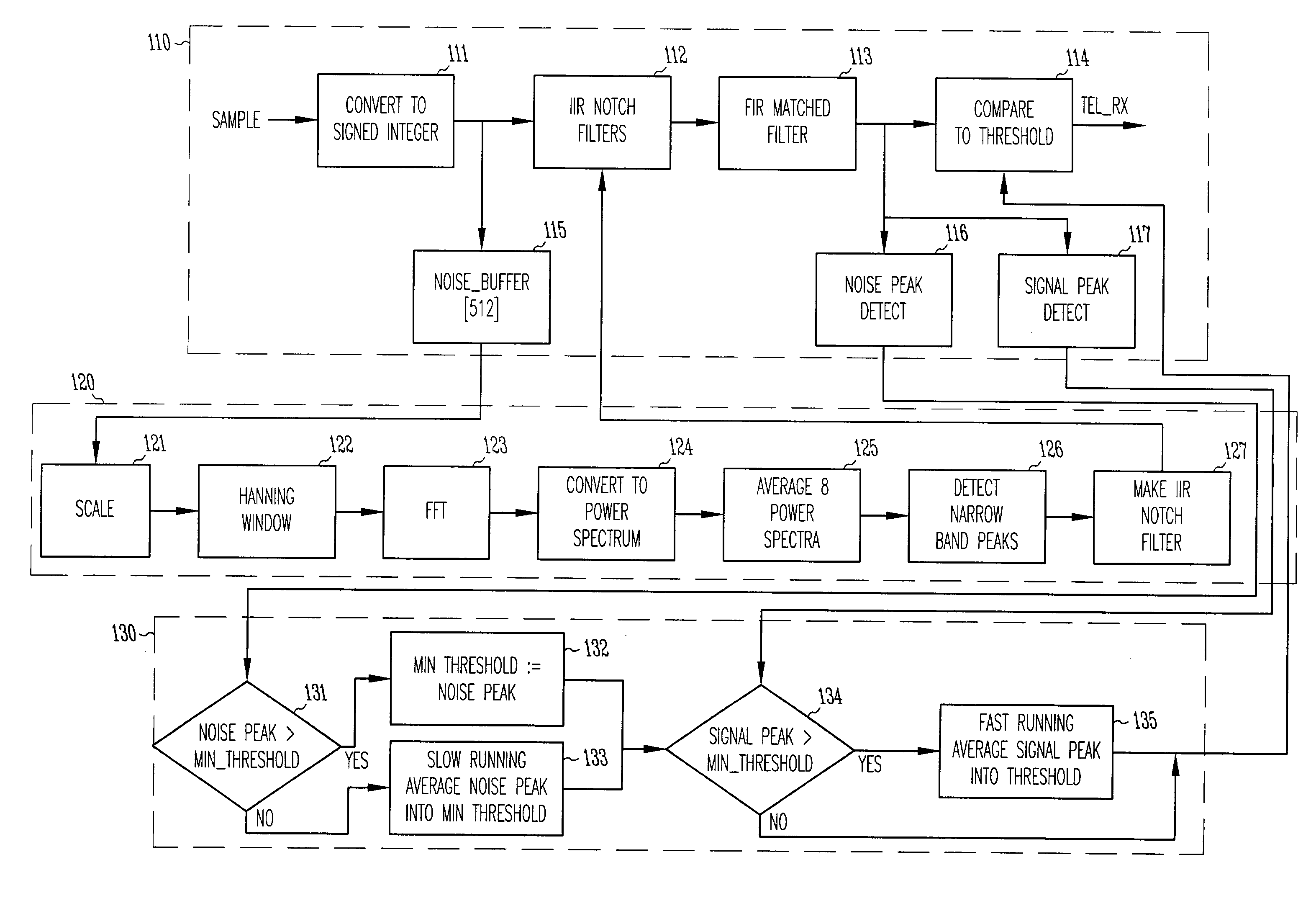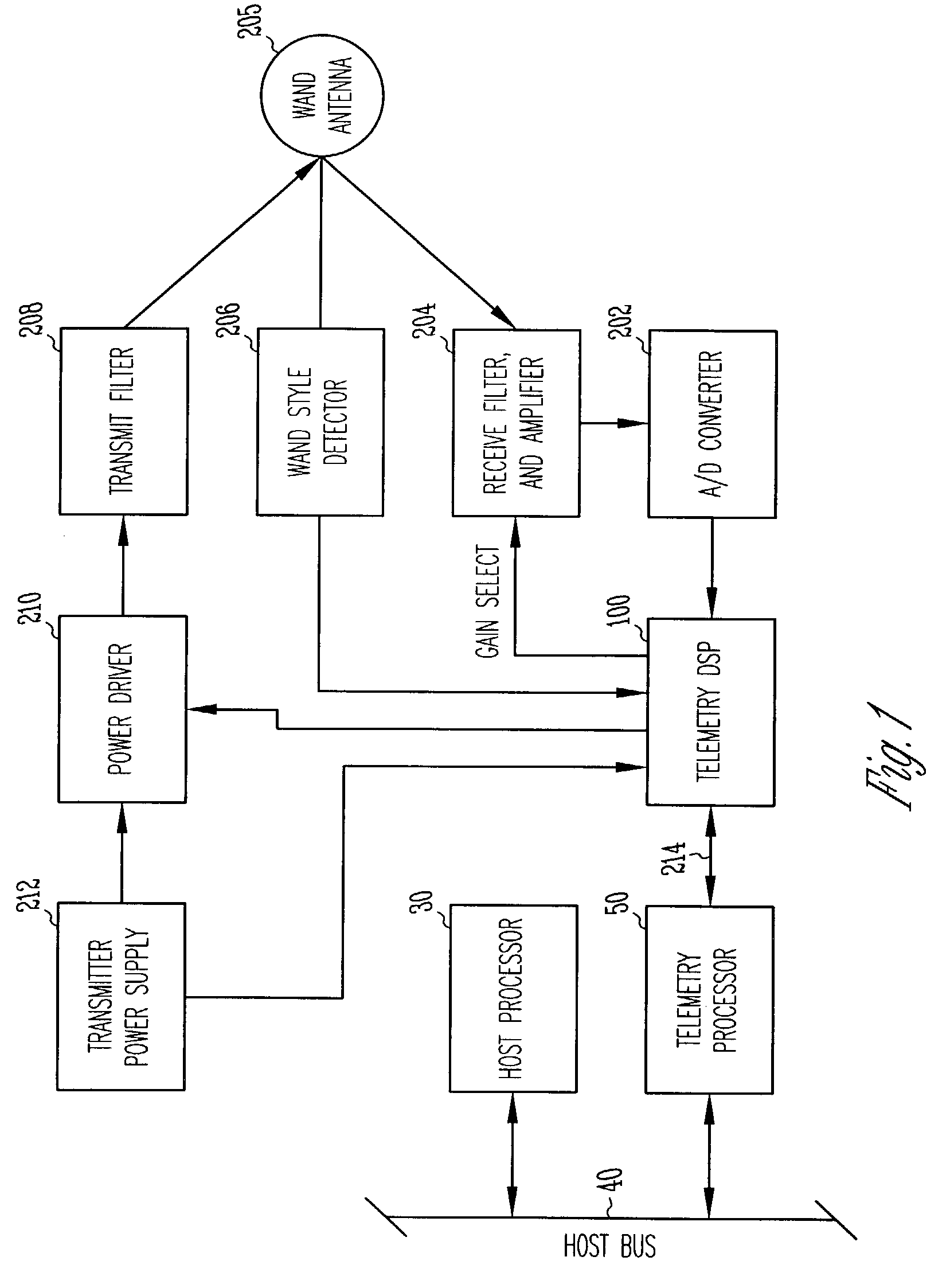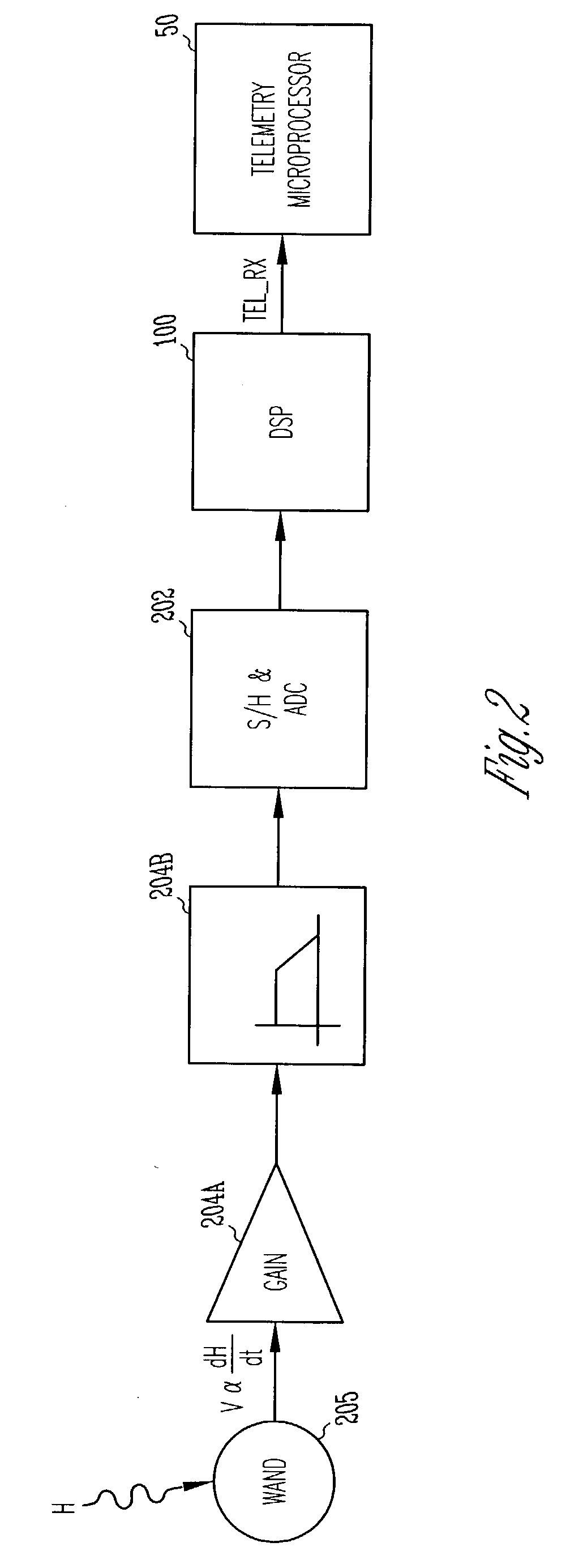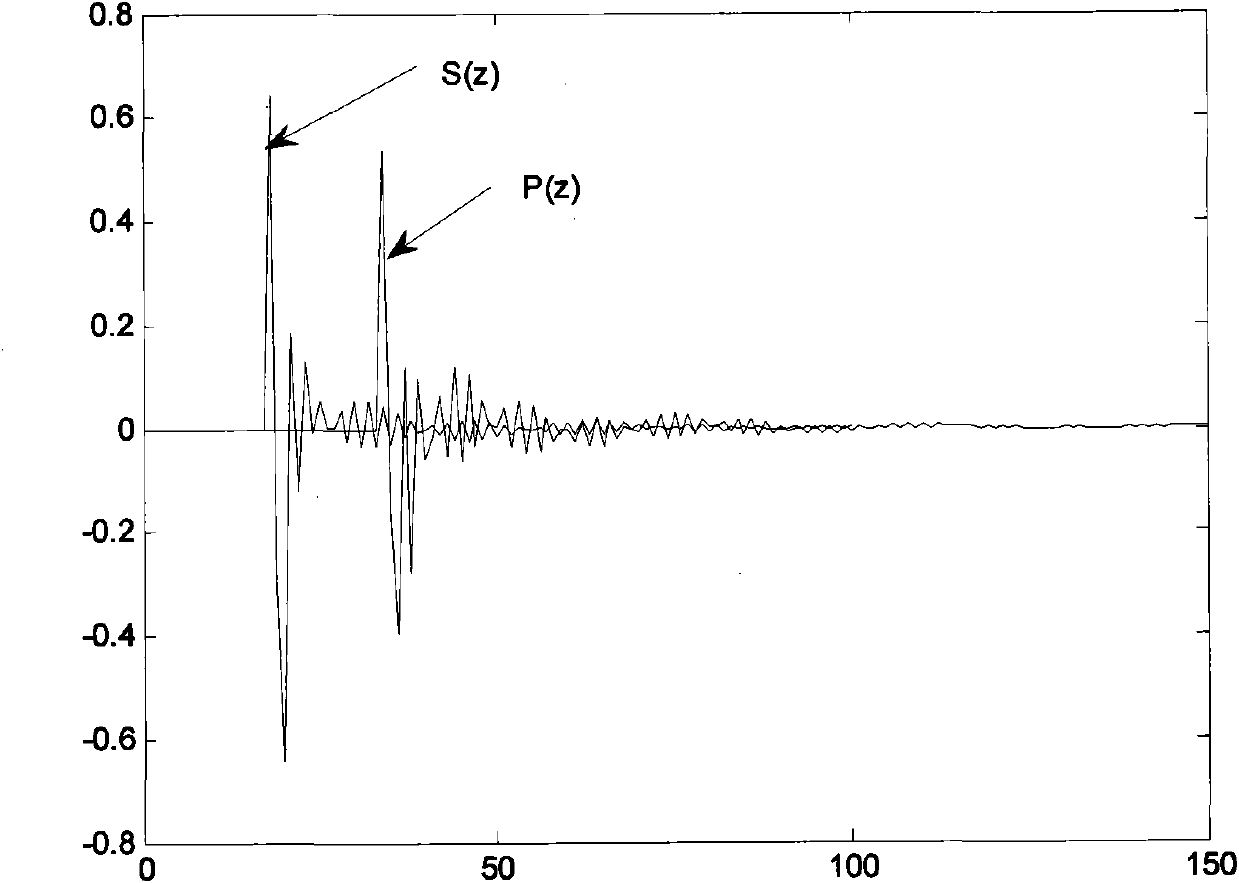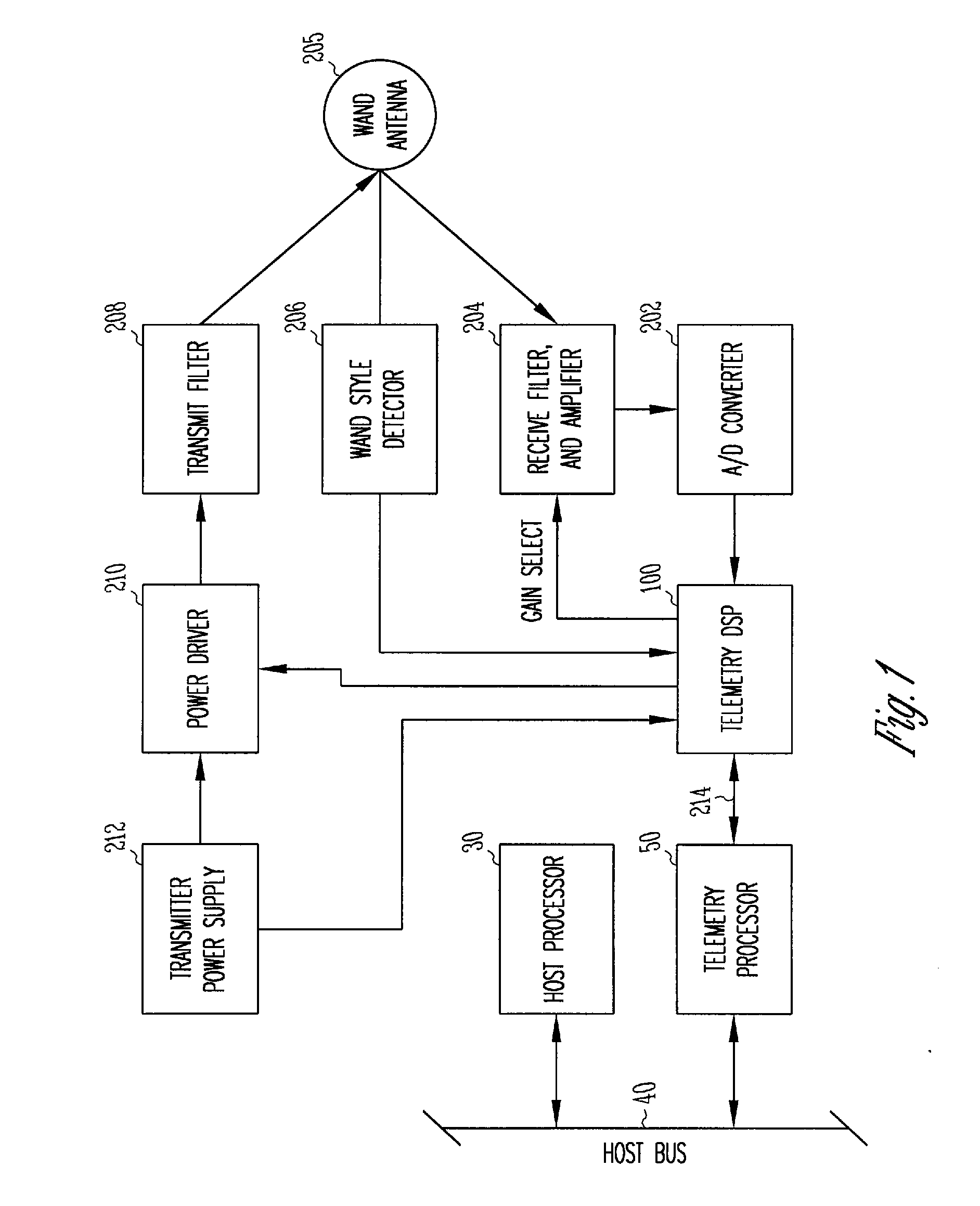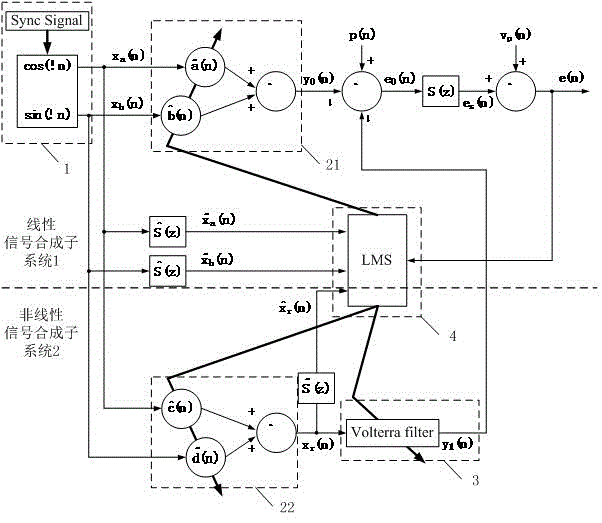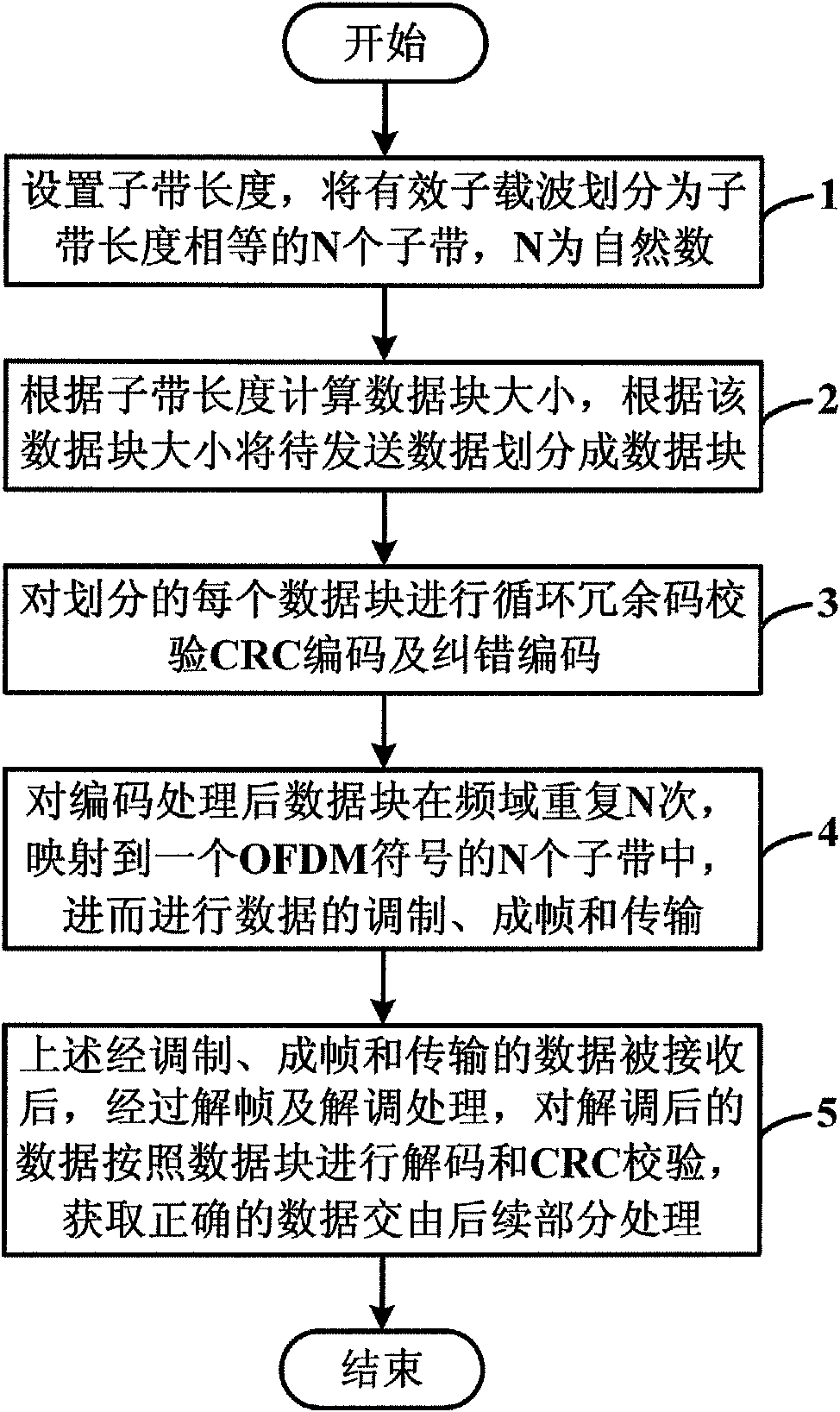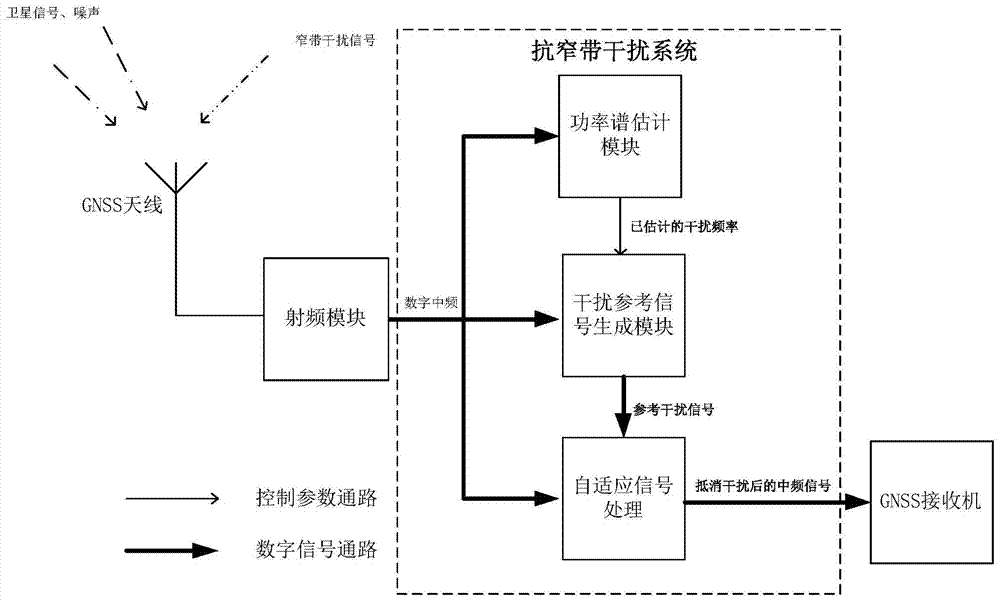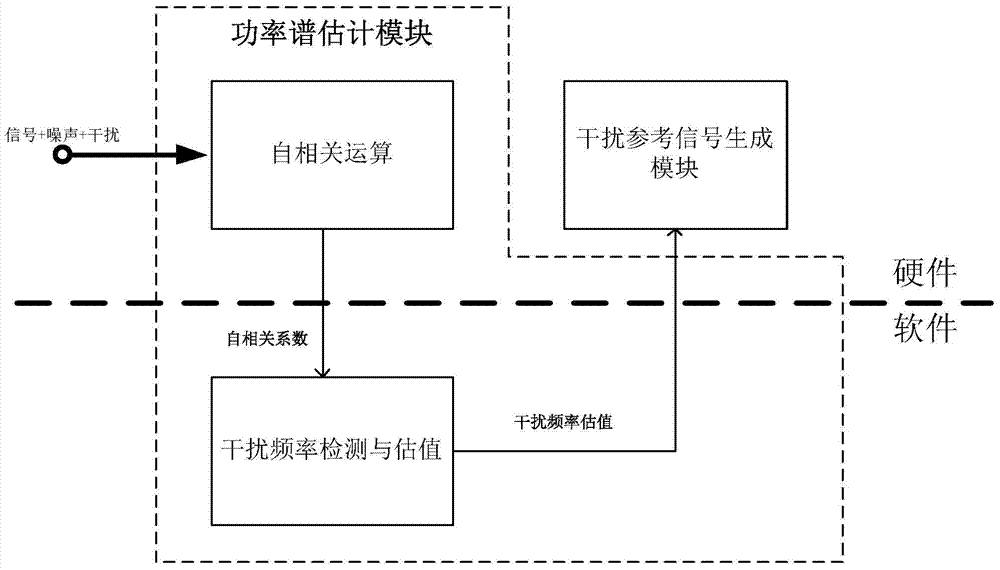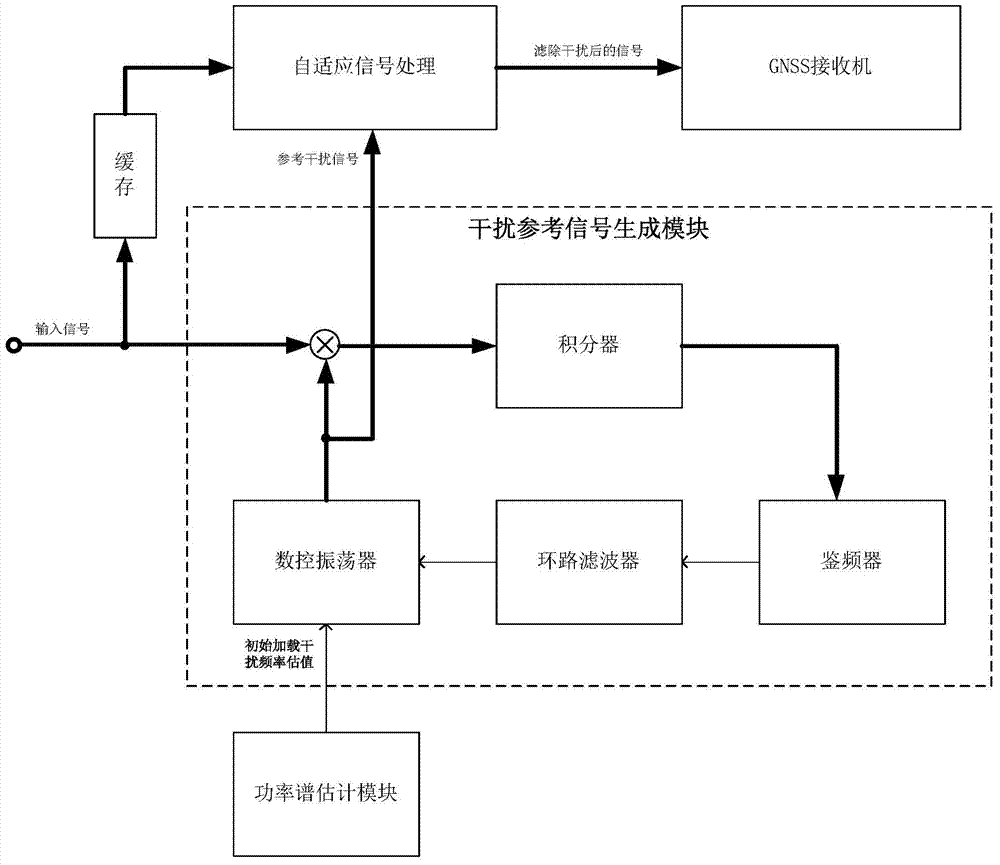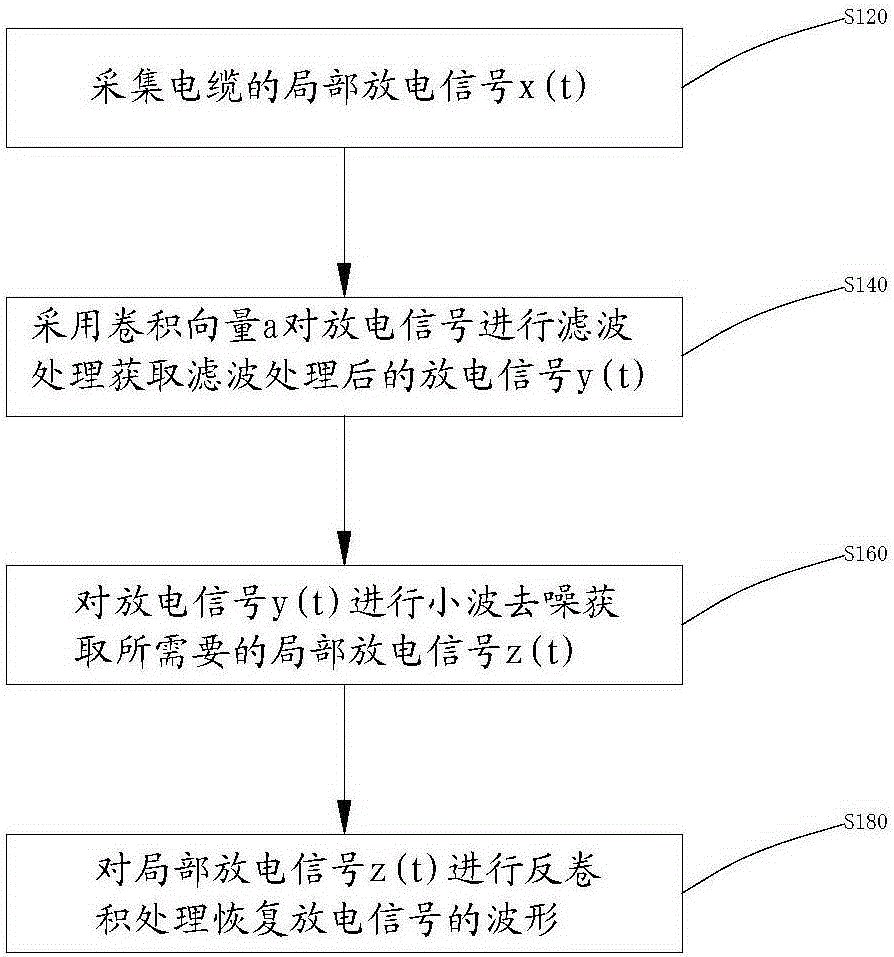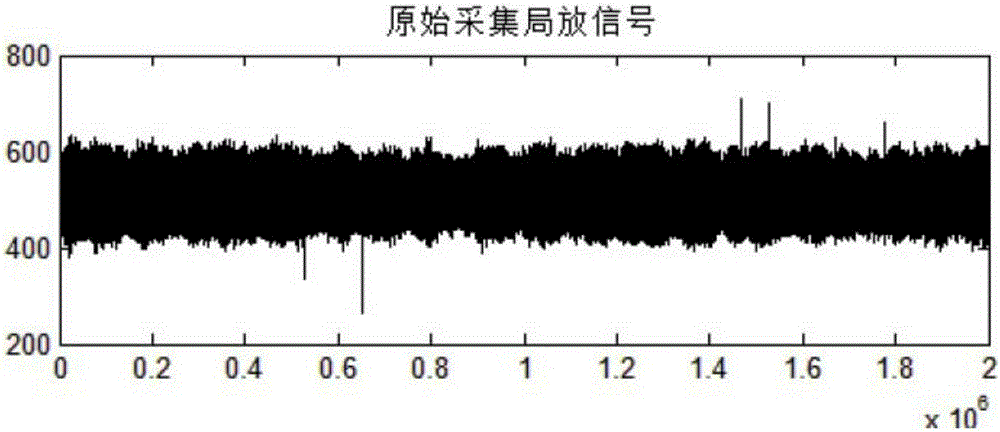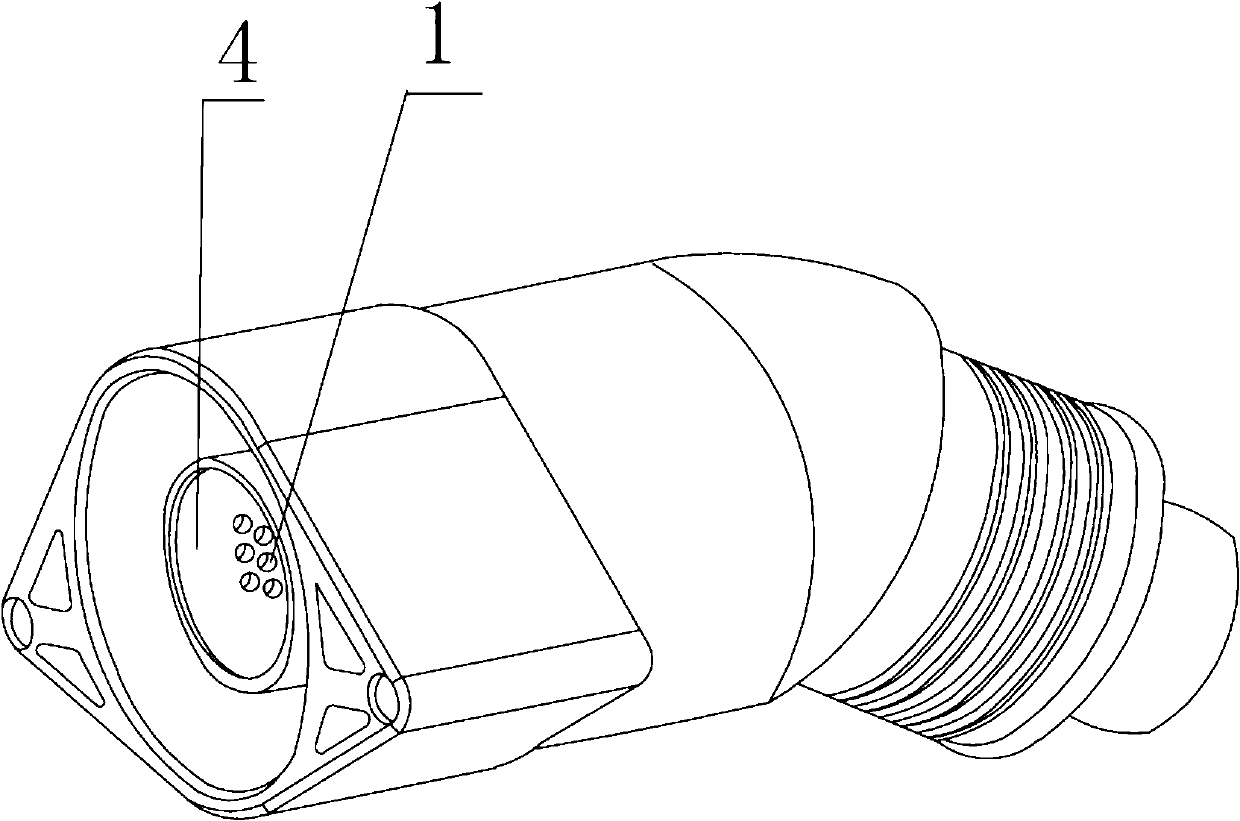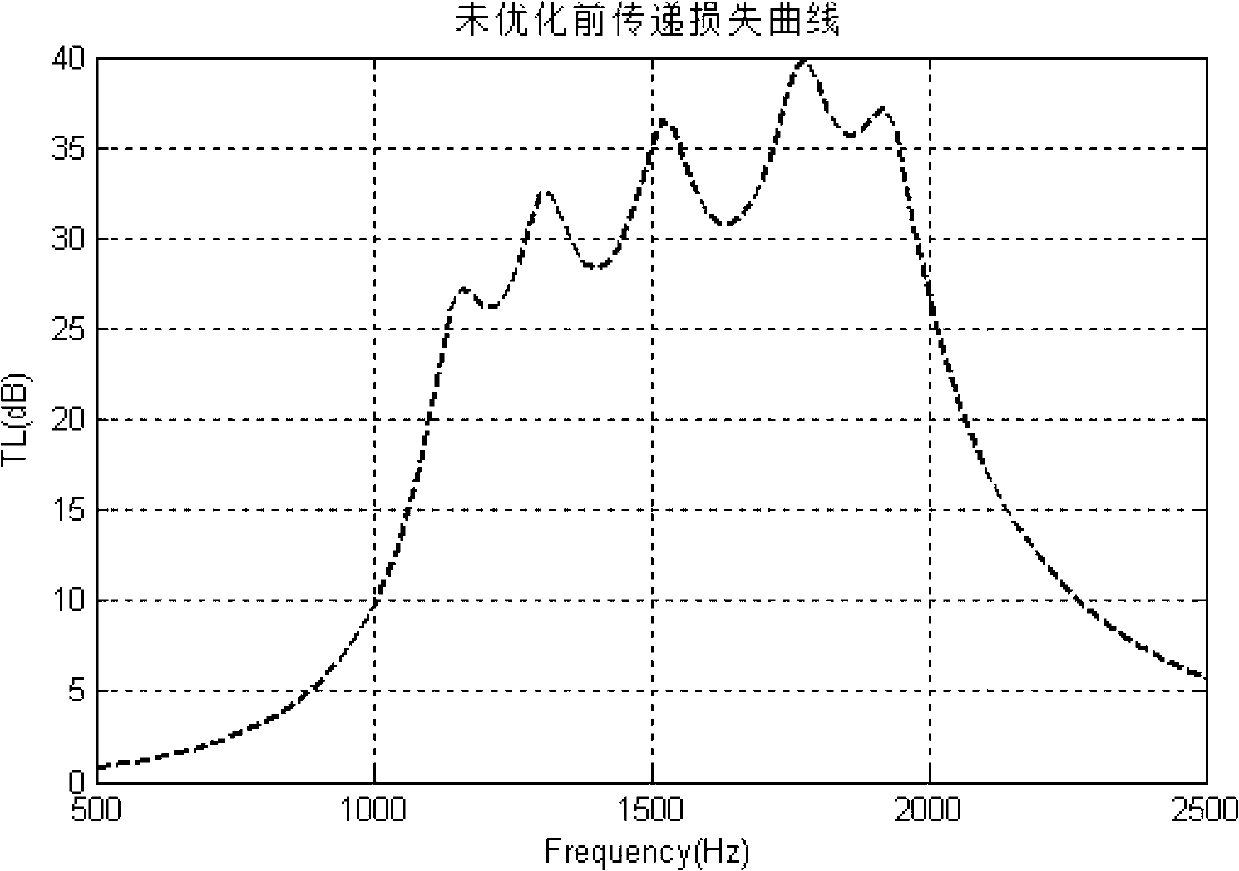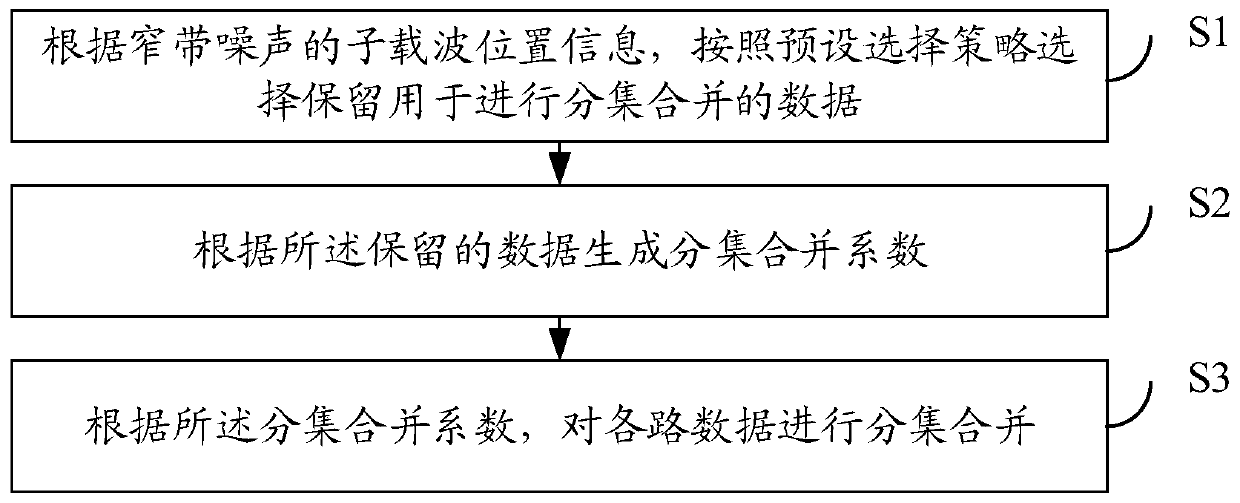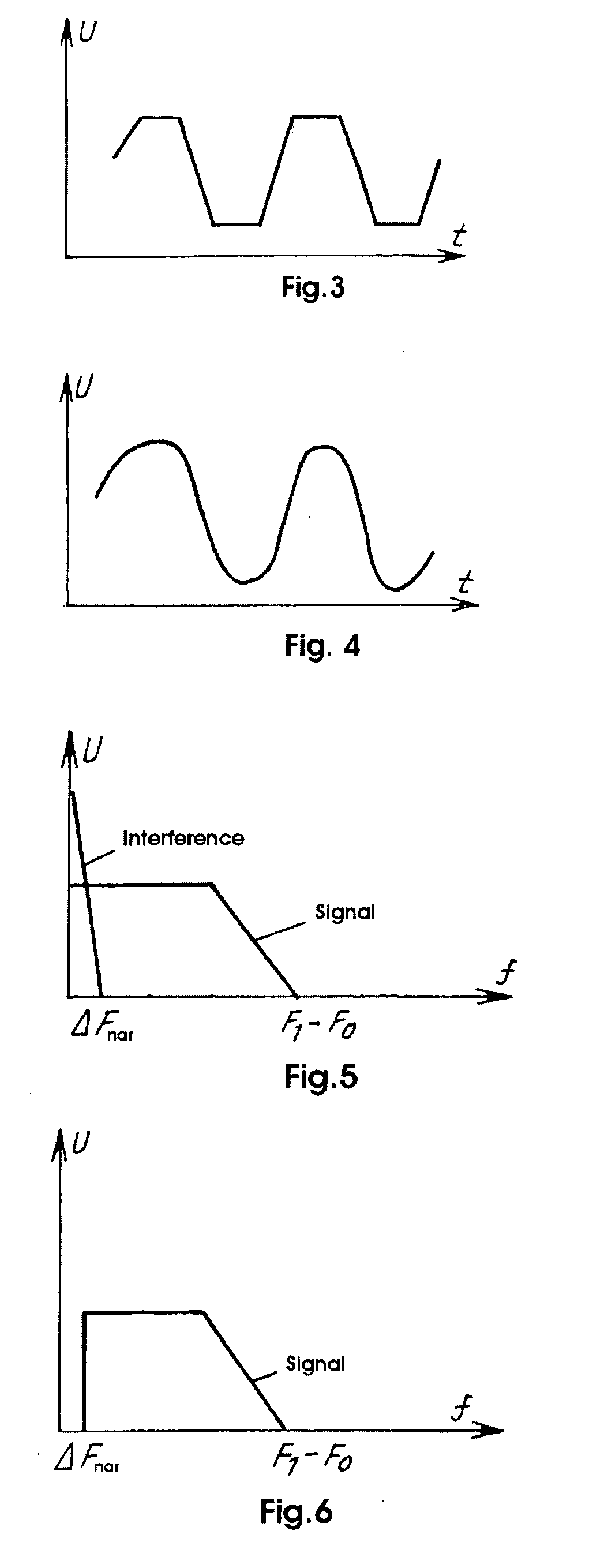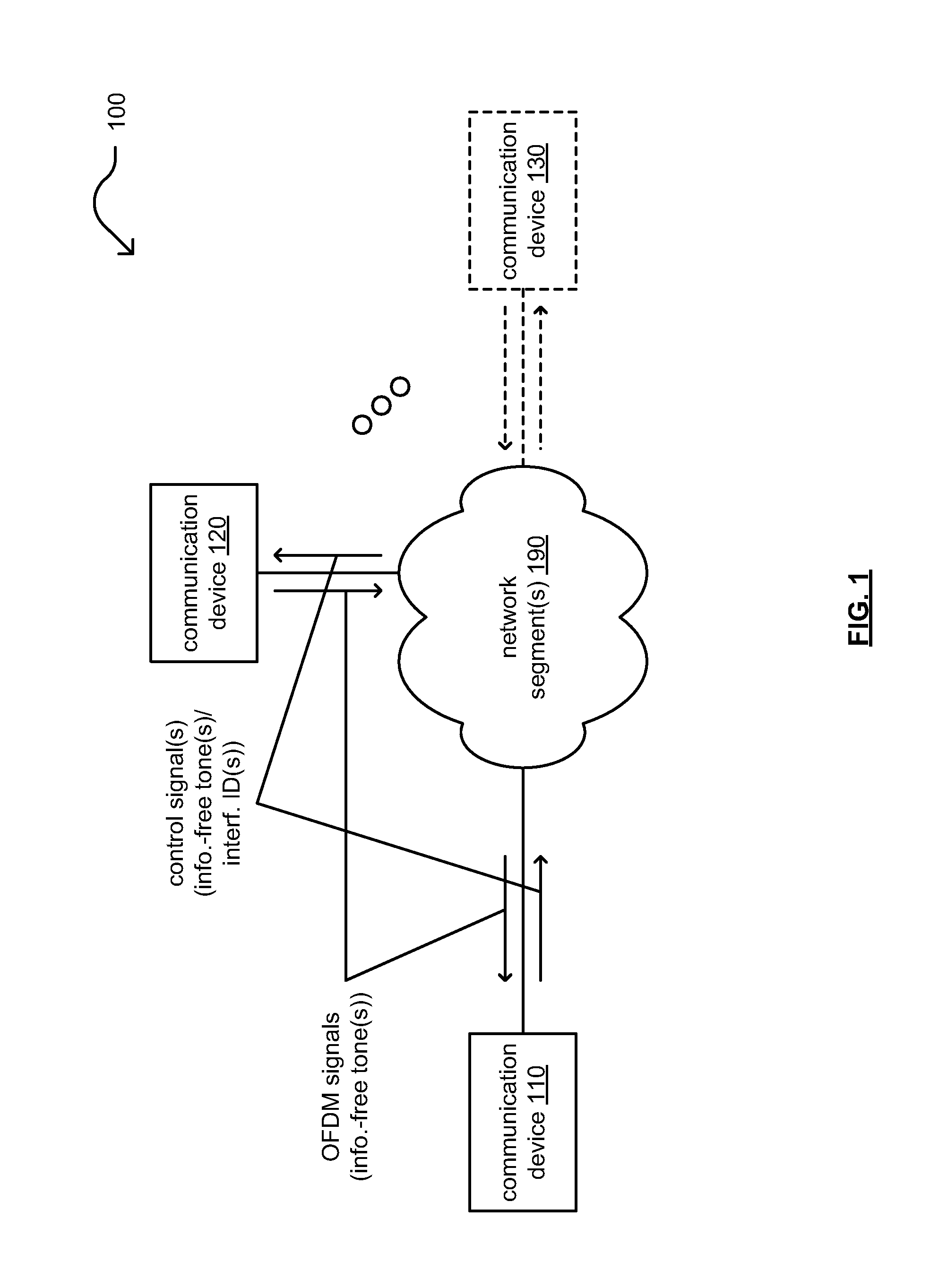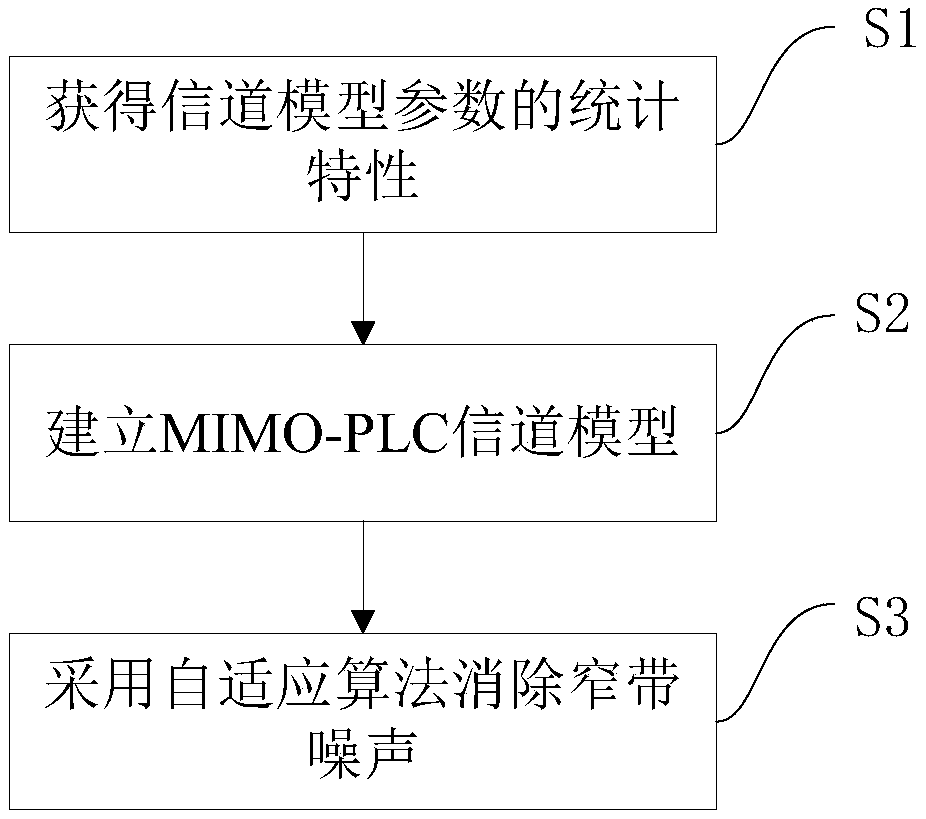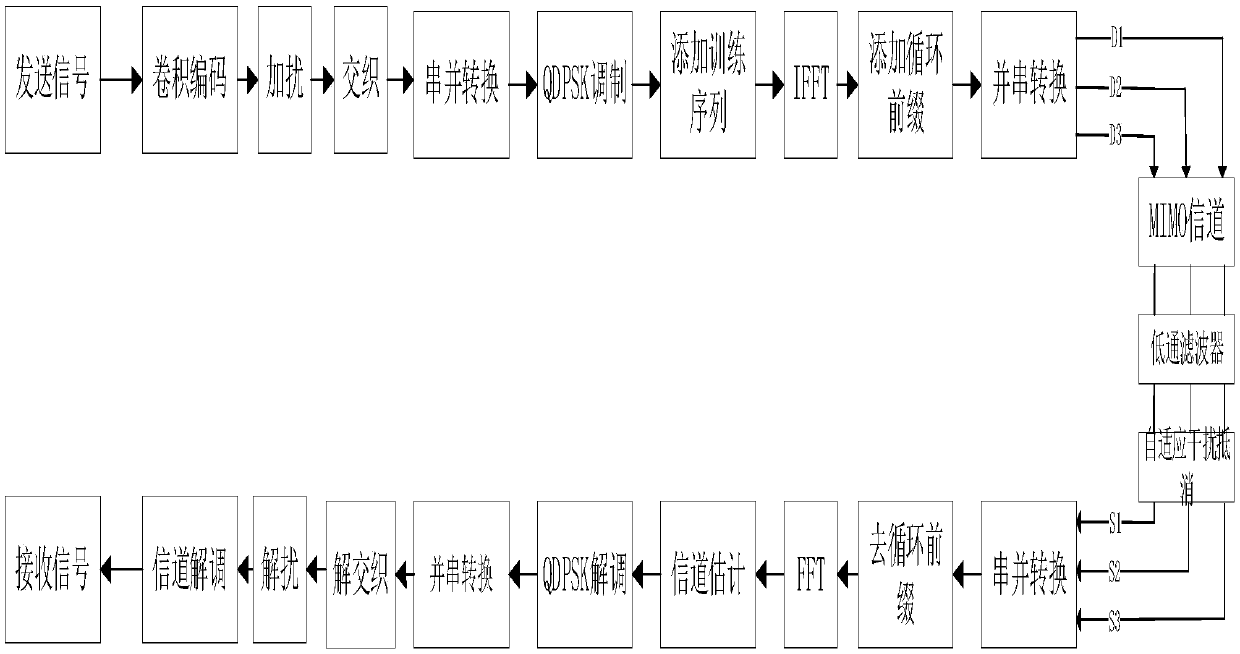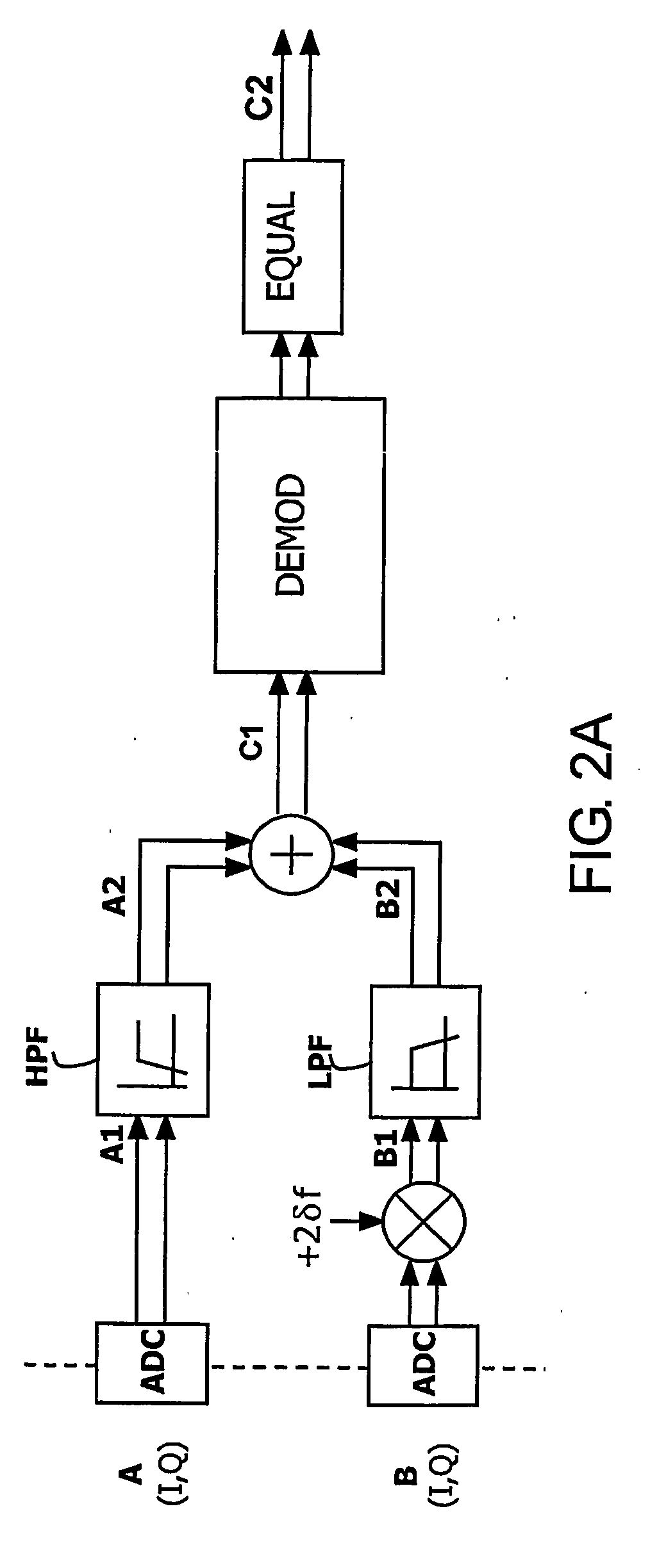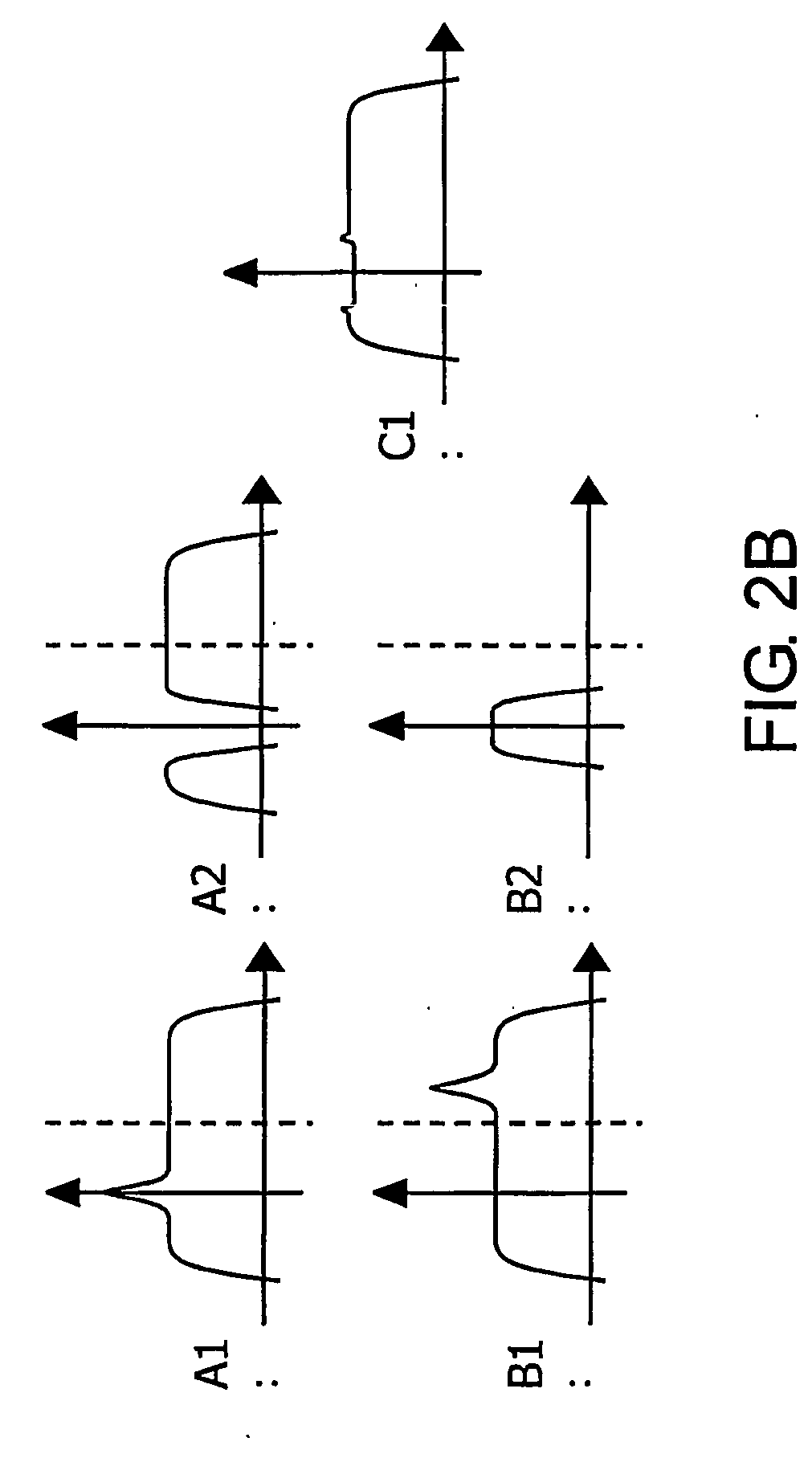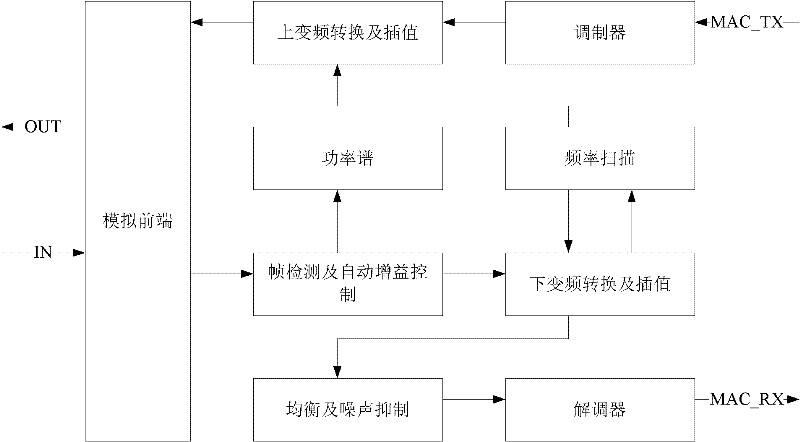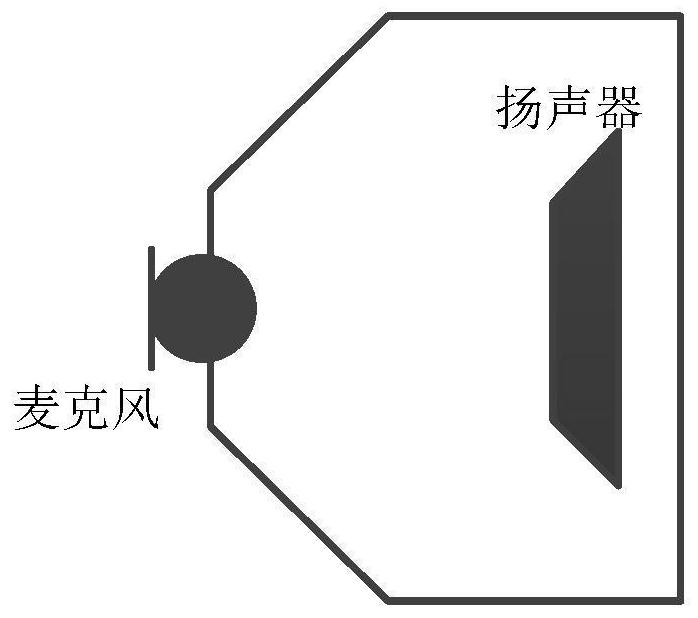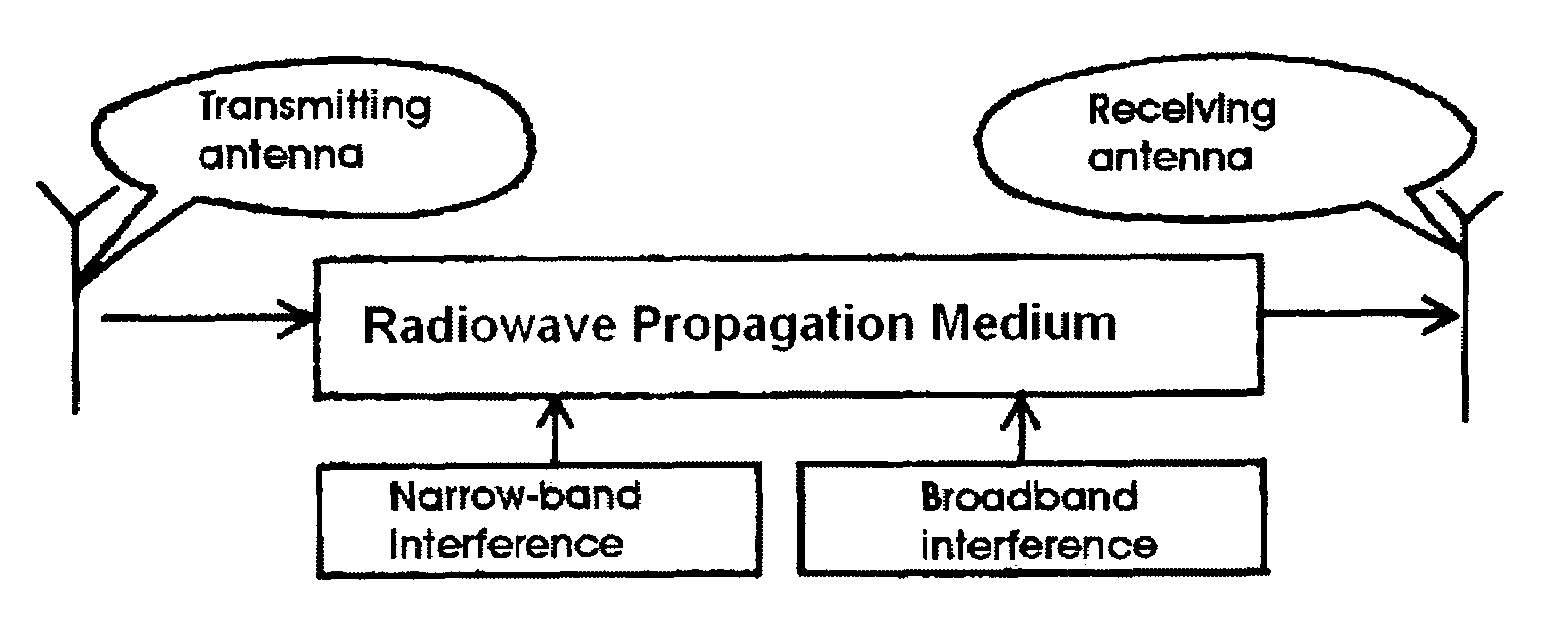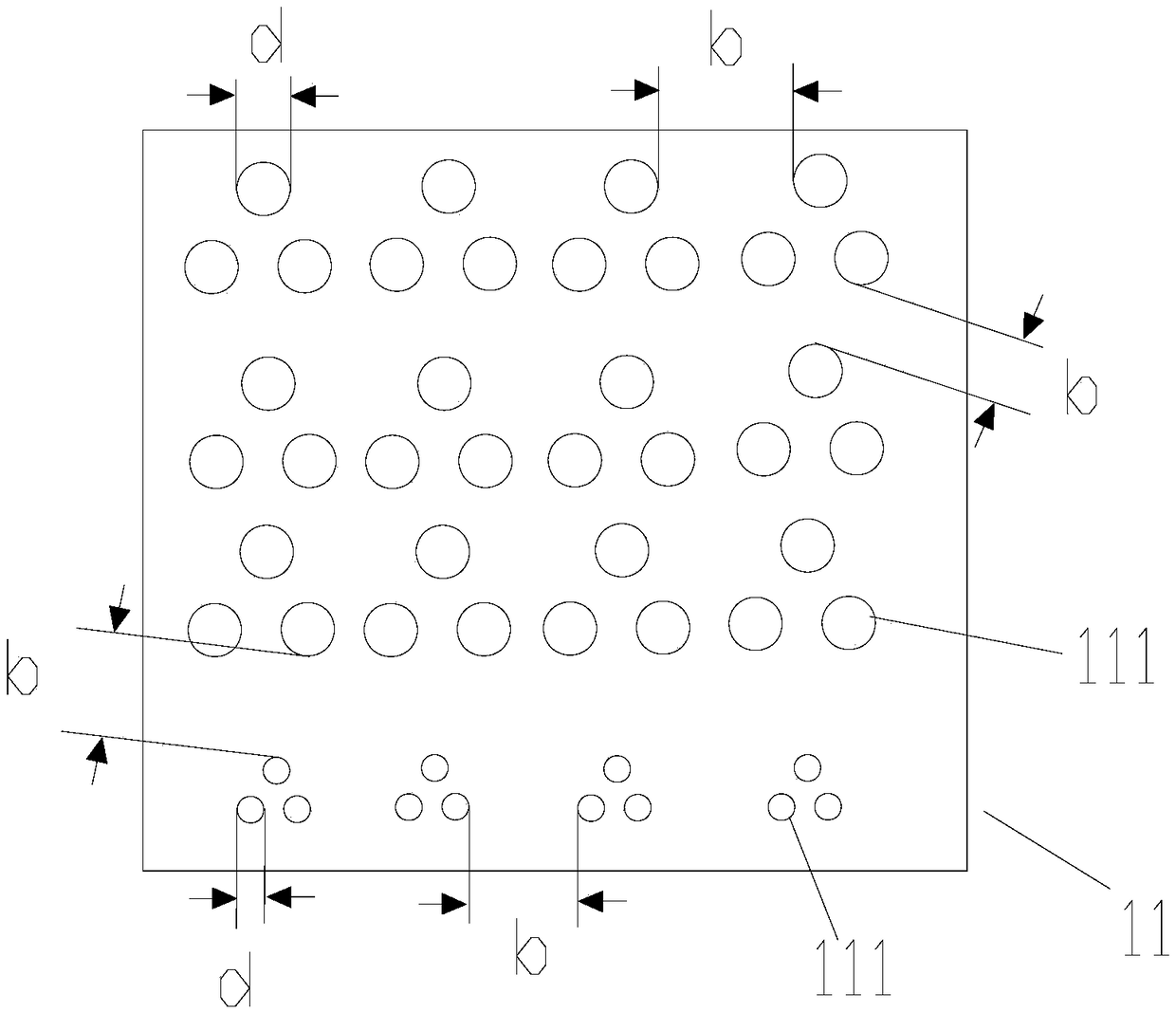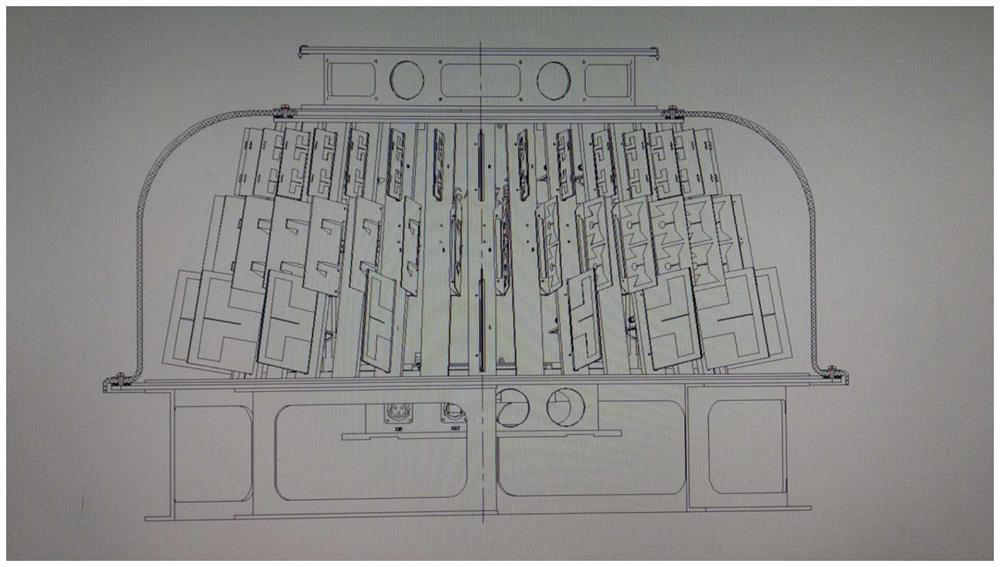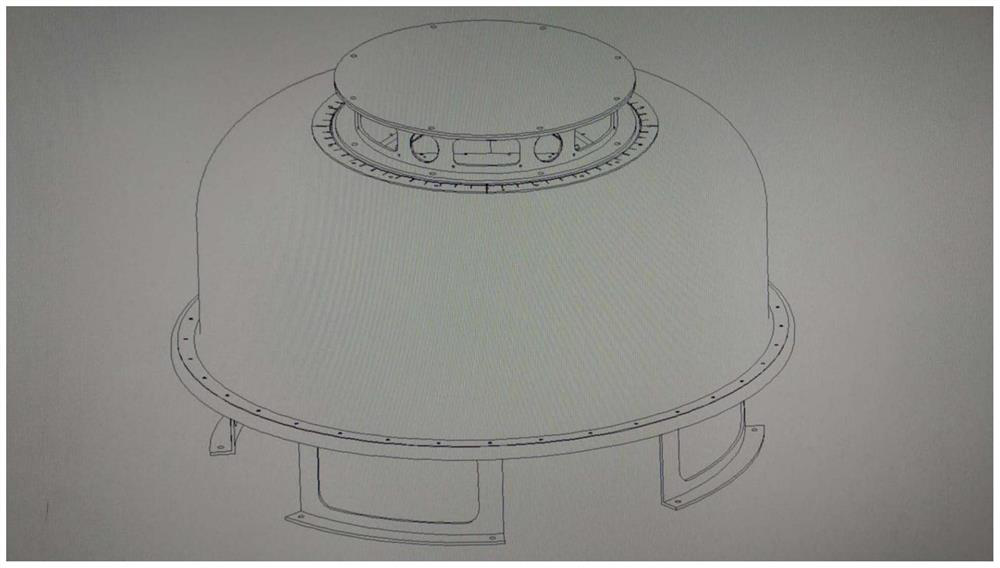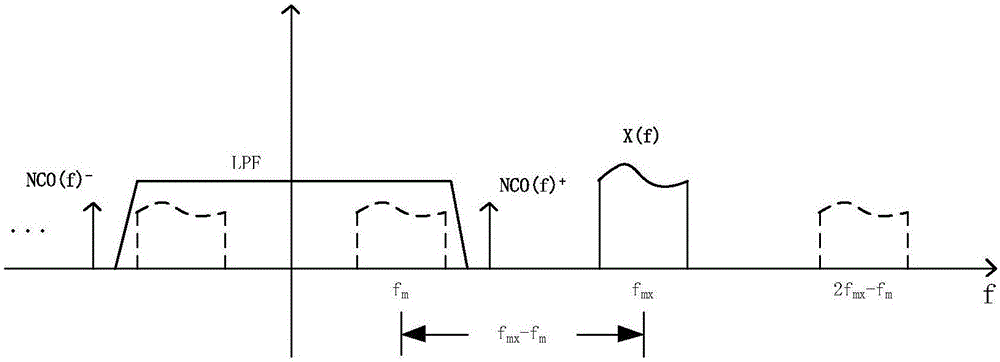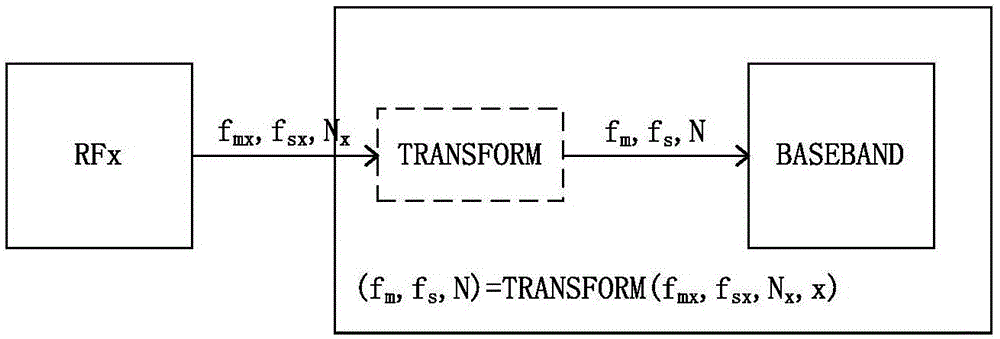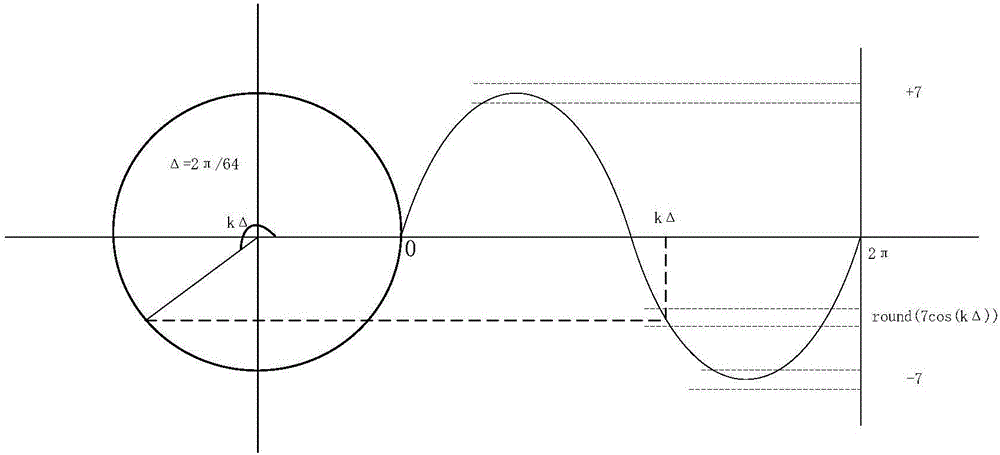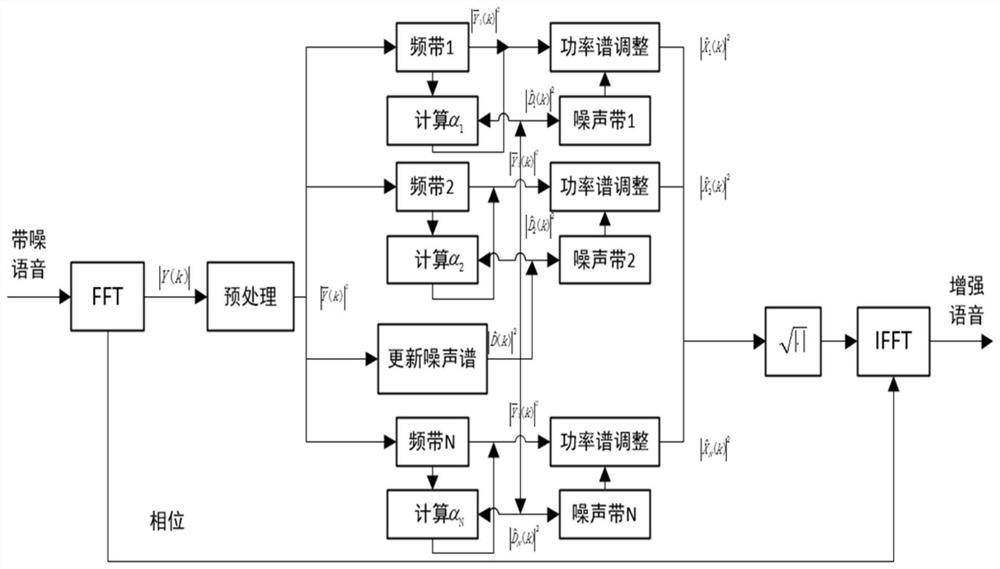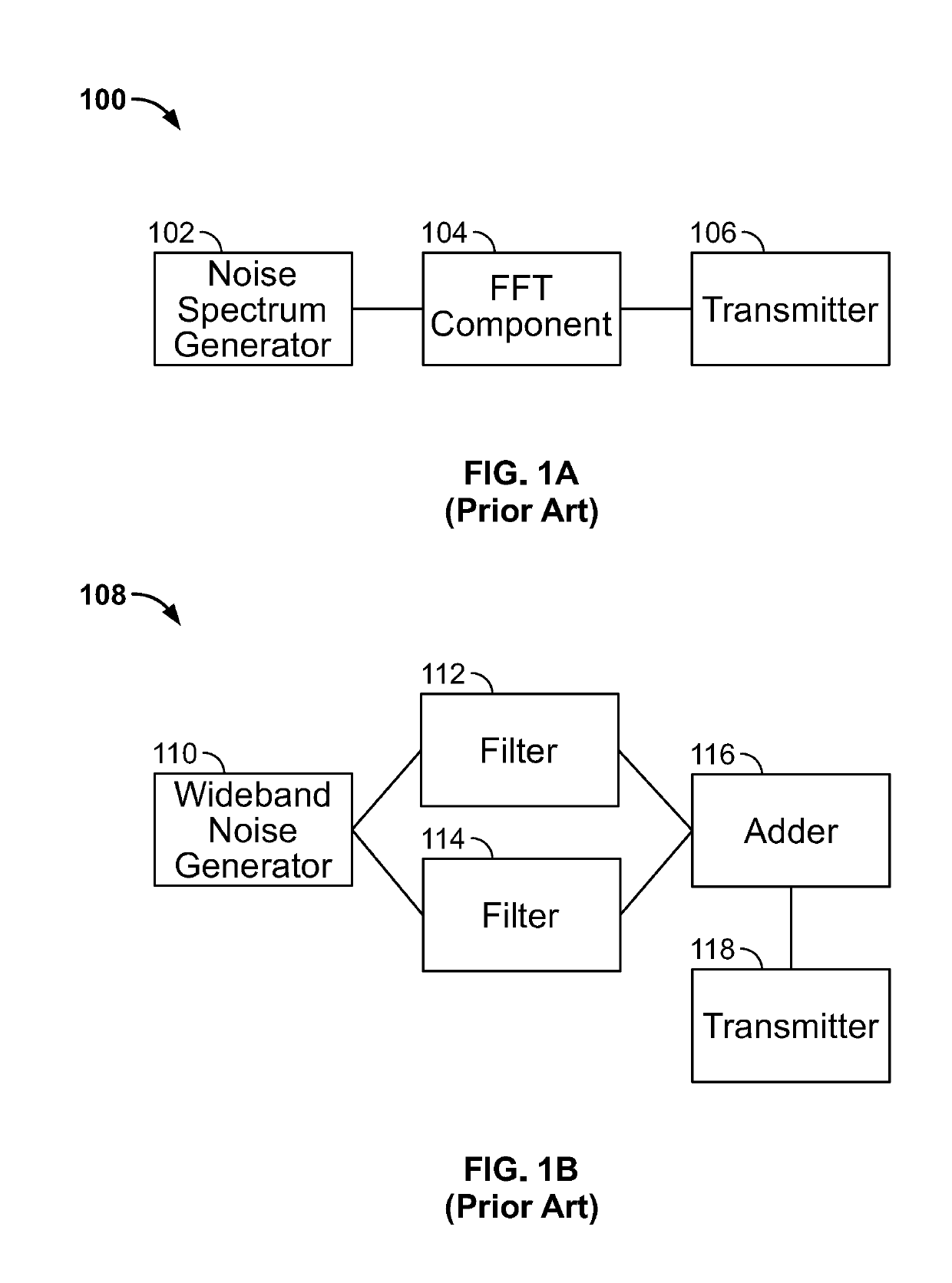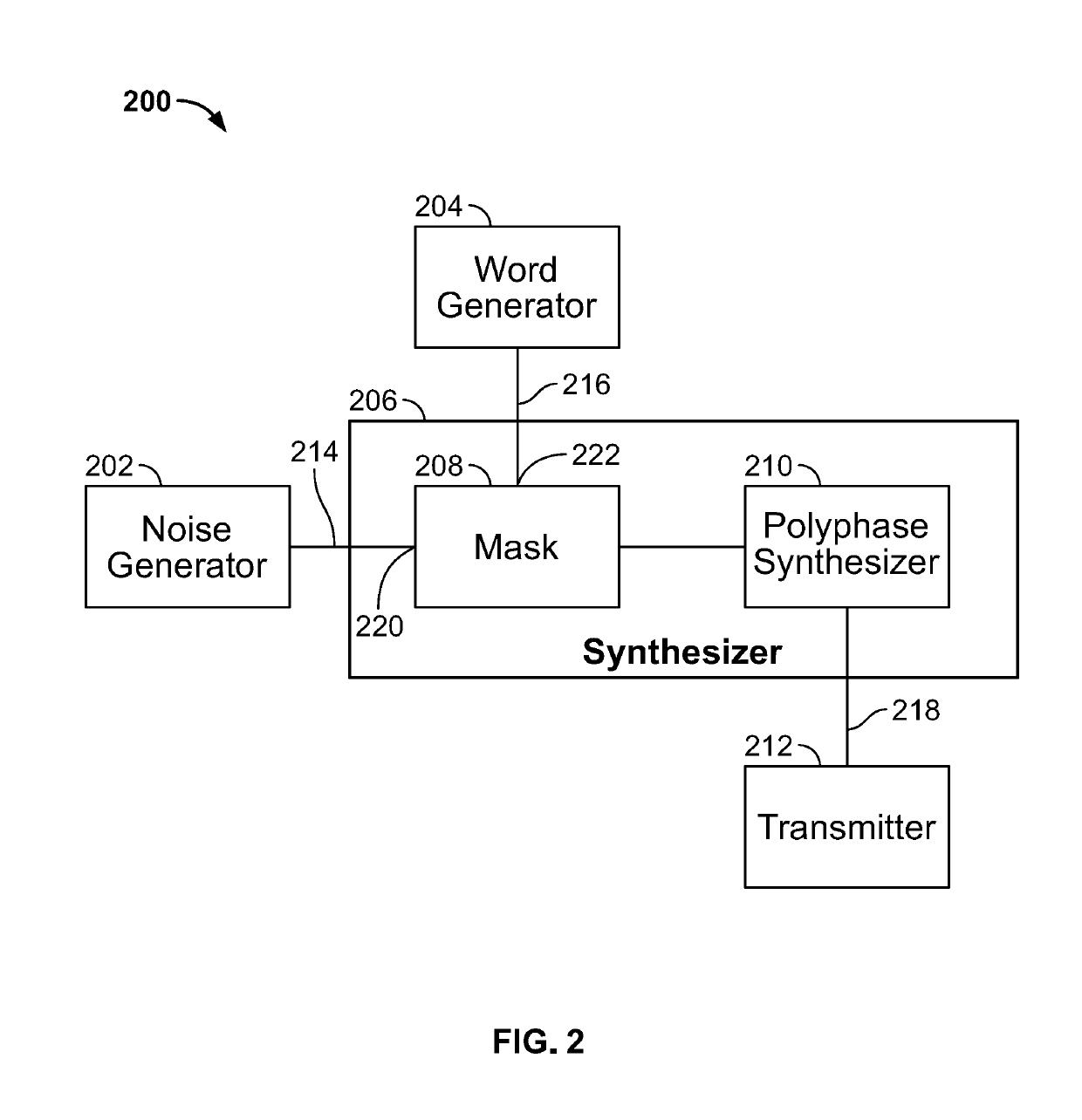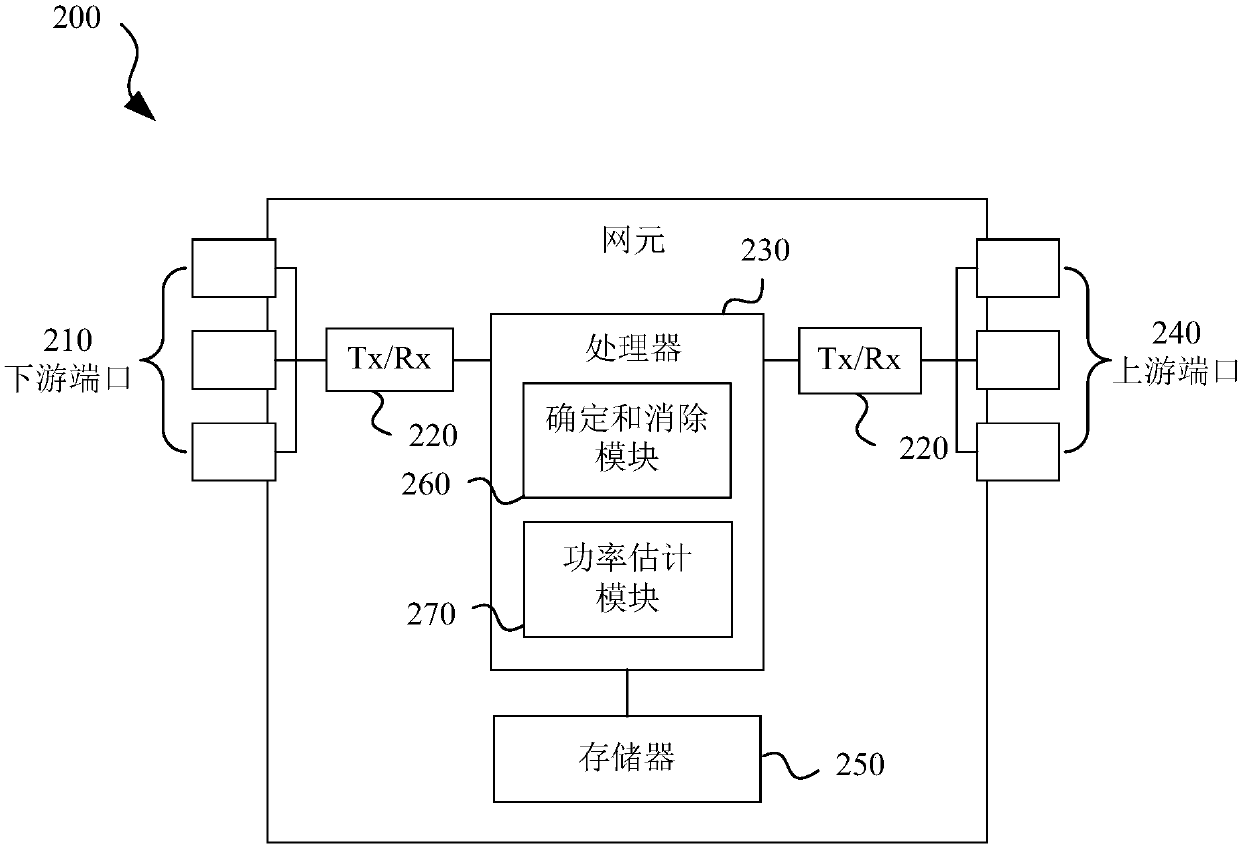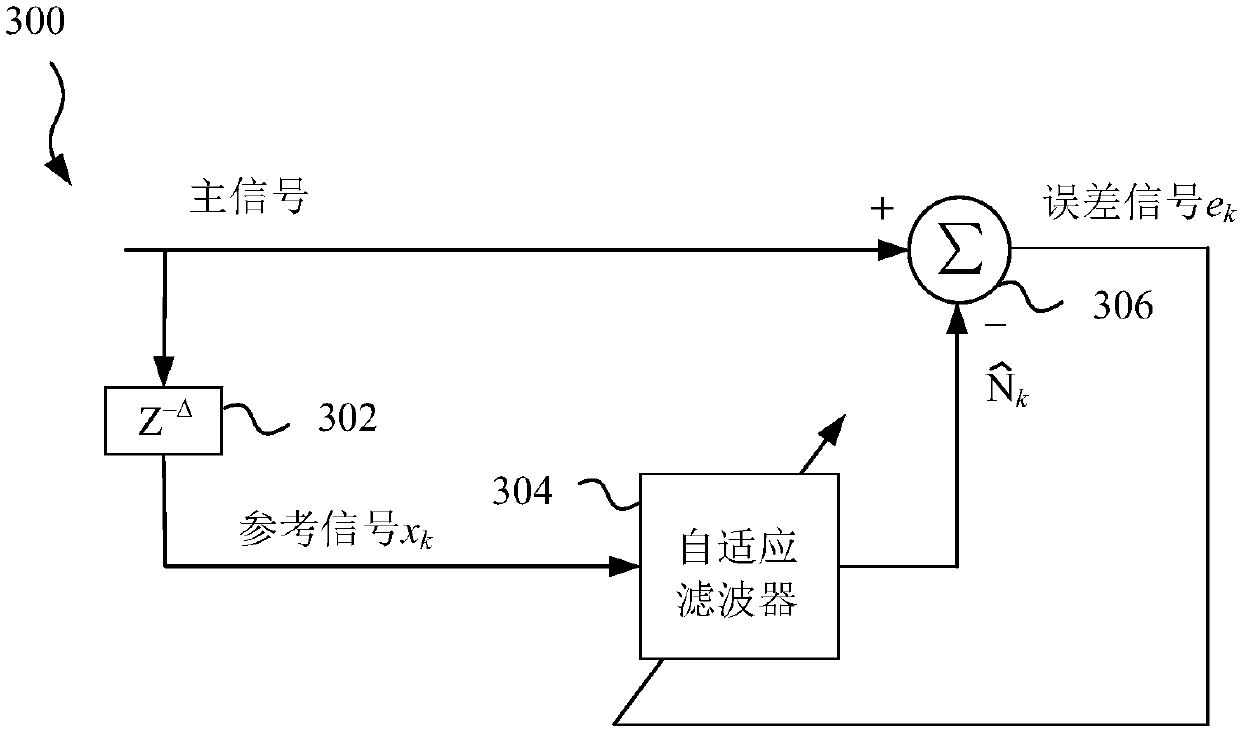Patents
Literature
Hiro is an intelligent assistant for R&D personnel, combined with Patent DNA, to facilitate innovative research.
64 results about "Narrowband noise" patented technology
Efficacy Topic
Property
Owner
Technical Advancement
Application Domain
Technology Topic
Technology Field Word
Patent Country/Region
Patent Type
Patent Status
Application Year
Inventor
Narrow-Band Noise. When the noise from a source contains a pure tone or narrow-band component which is noticeable to the ear as a noise of distinguishable pitch, and which represents a dominant feature of the total source noise, then the source noise should be regarded as containing narrow-band noise for the purpose of this Specification.
System and method for removing narrowband noise
A system and method for removing narrowband noise from an input signal in which notch filters having notch frequencies corresponding to the noise are dynamically adjusted in accordance with a detected noise spectrum. The method may be applied to telemetry systems for implantable medical devices such as cardiac pacemakers to result in improved noise immunity.
Owner:CARDIAC PACEMAKERS INC
Noise removal for electronic device with far field microphone on console
Reduction of noise in a device having a console with one or more microphones and a source of narrow band distributed noise located on the console is disclosed. A microphone signal containing a broad band distributed desired sound and narrow band distributed noise is divided amongst a plurality of frequency bins. For each frequency bin, it is determined whether a portion of the signal within the frequency bin belongs to a narrow band distribution characteristic of the source of narrow band noise located on the console. Any frequency bins containing portions of the signal belonging to the narrow band distribution are filtered to reduce the narrow band noise.
Owner:SONY COMPUTER ENTERTAINMENT INC
RFI canceller using narrowband and wideband noise estimators
InactiveUS20010050987A1Remove restrictionsInterconnection arrangementsError preventionBroadband noiseAdaptive filter
In an adaptive filter for cancelling common-mode noise in digital subscriber loops, a narrowband noise estimator is used to detect one or more noisy frequency bands of the common mode signal and derive therefrom a first noise estimation signal. A wideband noise estimator derives from the remainder of the common mode signal a second noise estimation signal. The first and second noise estimation signals are subtracted from the differential signal, The wideband noise estimator comprises a bandstop filter for removing the frequencies detected by the narrowband noise estimator, an analog-to-digital converter for digitizing the bandstopped signal, and an adaptive filter for deriving the second noise estimation signal from the digitized bandstopped signal and, in the process, compensating for phase and gain differences, especially attributable to the interference being injected at different points along the length of the channel.
Owner:BELL CANADA
Abnormal vibration analysis-based GIS (gas insulated switchgear) mechanical fault diagnosis method and system
ActiveCN105973621ANormal operation without any impactNormal operation impactSubsonic/sonic/ultrasonic wave measurementUsing electrical meansSignal onElectric power system
The invention discloses an abnormal vibration analysis-based GIS (gas insulated switchgear) mechanical fault diagnosis method and system. The GIS (gas insulated switchgear) mechanical fault diagnosis method includes the following steps that: vibration signals on a GIS are acquired; de-noising processing is performed on the acquired signals through using a threshold de-noising method; various kinds of feature information contained in the signals are extracted by using a narrowband noise aided multivariate empirical mode decomposition (EMD) method; the power feature of the signals is extracted by using a power density function, and the maximal amplitudes of the power spectra of all IMF of each channel are calculated so as to form power feature matrixes under measured conditions; and a power feature matrix under a normal condition and / or power feature matrixes under various kinds of fault conditions which are obtained through tests are adopted as judgment criteria of faults. Compared with a traditional method, the method and system of the invention have no influence on the normal operation of a whole power system, and can monitor the running state of the GIS safely and reliably, and are suitable for being applied to GIS substations of various voltage levels.
Owner:STATE GRID CORP OF CHINA +1
RFI canceller using narrowband and wideband noise estimators
In an adaptive filter for cancelling common-mode noise in digital subscriber loops, a narrowband noise estimator is used to detect one or more noisy frequency bands of the common mode signal and derive therefrom a first noise estimation signal. A wideband noise estimator derives from the remainder of the common mode signal a second noise estimation signal. The first and second noise estimation signals are subtracted from the differential signal, The wideband noise estimator comprises a bandstop filter for removing the frequencies detected by the narrowband noise estimator, an analog-to-digital converter for digitizing the bandstopped signal, and an adaptive filter for deriving the second noise estimation signal from the digitized bandstopped signal and, in the process, compensating for phase and gain differences, especially attributable to the interference being injected at different points along the length of the channel.
Owner:BELL CANADA
System and method for receiving telemetry data from an implantable medical device
A system and method for receiving telemetry data from implantable medical devices such as cardiac pacemakers with improved noise immunity is disclosed. Ambient noise levels and signal strength are monitored and used to adaptively adjust the detection sensitivity of the receiver. Filtering of the received signal is performed to remove both broadband and narrowband noise. Removal of narrowband noise is accomplished with notch filters that are dynamically adjusted in accordance with a detected noise spectrum.
Owner:CARDIAC PACEMAKERS INC
Active noise control method for eliminating and reducing noise
InactiveCN101833949AFast convergenceAdjust runtimeSound producing devicesNoise controlBroadband noise
The invention discloses an active noise control method for eliminating and reducing noise. An active noise control device is subjected to the operation in the following steps of: (1) identifying a transfer function between a secondary source and an error sensor by using a common LMS (Least Mean Square) algorithm to obtain a transfer function estimating value of a signal transmitting channel; (2) obtaining an output signal y1(n) of an FXLMS (Filtered-x Least Mean Square) algorithm self-adapting filter W(n) according to a primary noise source signal x(n); (3) obtaining an output signal y2(n) of a DFT-FSF (Discrete Forurier Transform-Fast Forurier Transform) algorithm self-adapting filter according to a filtering reference signal of the signal transmitting channel; (4) adding y1(n) and y2(n) to obtain y(n) and respectively obtaining an expected signal d(n) and an error signal e(n) at the error sensor position and an estimating value of d(n); and (5) updating the DFT-FSF algorithm self-adapting filter V(n) and adjusting the FXLMS self-adapting filter W(n); and repeating the steps (2) to (5) and gradually reducing e(n) to achieve the aim of noise reduction at the error sensor position. The invention has the advantage of combining and utilizing the favorable benefits that an FXLMS algorithm is suitable for narrowband noise reduction and a DFT-FSF algorithm is suitable for broadband noise reduction and greatly reduces computation burden.
Owner:ZHEJIANG WANLI UNIV
System and method for removing narrowband noise
A system and method for removing narrowband noise from an input signal in which notch filters having notch frequencies corresponding to the noise are dynamically adjusted in accordance with a detected noise spectrum. The method may be applied to telemetry systems for implantable medical devices such as cardiac pacemakers to result in improved noise immunity.
Owner:CARDIAC PACEMAKERS INC
System and method for receiving telemetry data from an implantable medical device
Owner:CARDIAC PACEMAKERS INC
Denoising method for partial discharge ultrahigh-frequency signal of transformer based on improved variational mode and SVD (singular value decomposition)
ActiveCN108983058AEnhanced inhibitory effectStable denoising effectTesting dielectric strengthSingular value decompositionAlgorithm
The invention discloses a denoising method for a partial discharge ultrahigh-frequency signal of a transformer based on the improved variational mode and SVD (singular value decomposition). The methodcomprises the following steps: collecting a partial discharge signal of oil-paper insulation of the transformer by using an ultra-high frequency detection method, performing the variational mode decomposition of the collected partial discharge signal; optimizing the parameters of the variational mode decomposition algorithm through using the evolutionary algorithm, and introducing a kurtosis indicator to filter out narrowband noise; performing the SVD of a signal with the narrow-band noise being filtered; improving a singular value screening process in the SVD algorithm through using a clustering algorithm, thereby achieving the better filtering of white noise. The method has the characteristics of high precision, good denoising effect and small distortion, and is suitable for real-time monitoring of oil-paper insulation of the transformer, partial discharge signal detection and the like.
Owner:CHINA THREE GORGES UNIV
Nonlinear narrowband active noise control method based on Volterra filter
InactiveCN104575512AReduce narrowband noiseEasy to implementSpeech analysisNoise controlNonlinear filter
The invention provides a nonlinear narrowband active noise control method based on a Volterra filter and aimed at a situation that higher harmonic noise is generated after a narrowband noise source is distorted nonlinearly. A linear signal synthesis subsystem (1), a nonlinear signal synthesis subsystem (2), a reference signal generation module and a least mean square algorithm module are used in the method; a reference signal in the method is generated by a synchronous signal generator based on a source noise frequency obtained by a non-acoustic sensor; one part of a secondary source is synthesized through a linear combiner, the other part of the secondary source is synthesized through another linear combiner and the nonlinear Volterra filter, and when primary source noise is distorted nonlinearly, a fundamental component and a higher harmonic component are independently inhibited by a linear filter and the nonlinear Volterra filter respectively. According to the nonlinear narrowband active noise control method, the nonlinearly distorted narrowband noise can be effectively inhibited, and the influence of nonlinearity on system performance can be easily analyzed due to an independent working structure.
Owner:NANJING UNIV OF AERONAUTICS & ASTRONAUTICS
Method for reducing narrowband noise interference in power line carrier communication
InactiveCN102111242AReduce bit error rateNarrowband Noise SuppressionError preventionPower distribution line transmissionCarrier signalComputer science
The invention discloses a method for reducing narrowband noise interference in power line carrier communication. The method comprises the following steps of: setting a sub-band length and dividing an effective sub-carrier into N sub-bands with equal sub-band length, wherein the N is a natural number; calculating the size of a data block according to the sub-band length and dividing data to be transmitted into data blocks according to the size of the data block; performing cyclic redundancy check (CRC) coding and error correction coding on every divided data block; repeating the data blocks which are subjected to coding processing for N times in a frequency domain, and mapping the repeated data blocks into the N sub-bands of one orthogonal frequency division multiplexing (OFDM) symbol so as to modulate, frame and transmit the data; after the modulated, framed and transmitted data is received, deframing and demodulating the data, and performing decoding and the CRC on the demodulated data according to the data blocks, acquiring correct data and processing the correct data by using successive parts. By the method, the problem of insufficient narrowband noise resistance in the conventional power line communication scheme is solved, and system realizing complexity is reduced.
Owner:BEIJING SMART NETWORKS NENGDA TECH
Narrowband interference resisting system and method based on adaptive signal processing
InactiveCN104502925APrecise positioningAccurate frequency lockSatellite radio beaconingContinuous wave interferenceContinuous wave
The invention discloses a narrowband interference resisting system and a narrowband interference resisting method based on adaptive signal processing. The narrowband interference resisting system based on the adaptive signal processing is located at the front end of a digital baseband, performs filtering processing on a digital intermediate frequency signal received by the narrowband interference resisting system based on the adaptive signal processing, and outputs the signal to the digital baseband after interference of the signal is filtered out. The narrowband interference resisting system based on the adaptive signal processing comprises a power spectrum estimation module of an interference signal, an interference reference signal generation module and an adaptive signal processing module. The narrowband interference resisting method based on the adaptive signal processing is directed at narrowband noise and continuous wave interference, and used to accurately detect, track and filter the interference signal. According to the narrowband interference resisting system and the narrowband interference resisting method based on the adaptive signal processing, useful signal components are retained to the utmost on the premise of filtering out the interference signal.
Owner:XIAN HUAXUN MICROELECTRONICS
Noise reduction processing method for cable local discharging signal
InactiveCN105182200AReduce noise amplitudeSuppress noiseTesting dielectric strengthEngineeringNoise reduction
The invention relates to a method which can effectively eliminate narrowband noise and white noise in the cable local discharging signal. The method comprises steps of signal filtering pretreatment, wavelet threshold noise reduction and deconvolution. The narrowband noise and the white noise whose amplitude and frequency are irregularly changed can be well restrained.
Owner:SUZHOU GUANGGE EQUIP
Silencer capable of eliminating both wideband noises and narrowband noises
InactiveCN102996302ACancel noiseAchieve hybrid noise reductionIntake silencers for fuelResonant cavityOptical cavity
The invention relates to the field of a silencer and in particular provides a silencer capable of eliminating both wideband noise and narrowband noise. The silencer comprises an annular air pipe; the inner pipe of the annular air pipe is an airflow main pipe, and at least two resonant cavities are arranged in the outer pipe of the annular air pipe; perforations are arranged in the wall of the airflow main pipe, and each resonant cavity is communicated with the airflow main pipe through at least one group of perforations; the wall of the outer pipe of the annular air pipe is formed by pipelines with the same diameter or by two or more pipelines with different pipelines which are connected in series; and the resonant cavities are separated by a clapboard. By adjusting the widths of the annular resonant cavities, the diameter and quantity of the outer pipes as well as the bore diameter and the quantity of the perforations in combination with the nonlinear least square method, the invention optimizes and obtains a superior assembly of the width, diameter and quantity of the resonant cavities and the bore diameter and quantity of the perforations of the silencer so that the silencer can have the effect of eliminating both wideband noises and narrowband noises. Meanwhile, the silencer is compact in structure and small in occupied room and saves room while the noise elimination performance is fulfilled.
Owner:郭荣
Data diversity combining method and device, communication equipment and storage medium
ActiveCN111464210AReduce the impactImprove reliabilityPower distribution line transmissionData diversityCarrier signal
The invention discloses a data diversity combining method and device, communication equipment and a storage medium, and the method comprises the steps: selecting and reserving data for diversity combining according to the subcarrier position information of narrow-band noise and a preset selection strategy; generating a diversity combining coefficient according to the reserved data; and according to the diversity combining coefficient, carrying out diversity combining on each path of data. According to the embodiment of the invention, the data diversity combining method and device, the communication equipment and the storage medium are applied to a power line communication system, can adapt to a power line communication environment, and select and reserve data with less narrow-band noise pollution for adaptive diversity by utilizing the position relationship between the data and the narrow-band noise, thereby reducing the influence of the narrow-band noise on signals, obtaining better diversity gain, and improving the reliability of data transmission.
Owner:深圳市均方根科技有限公司
Method for suppressing narrowband noise in a wideband communication system
InactiveUS20060140316A1Raising narrow-band interference suppression factorImprove noise immunityError preventionLine-faulsts/interference reductionFrequency spectrumCommunications system
This invention is used in communications, for example, in expanded signal spectrum broadband communication systems. The technical effect of this invention consists in an enhanced narrow-band interference suppression factor and almost complete elimination of the effect displayed by a powerful narrow-band interference or a group of narrow-band interferences in a limited frequency band. A noise signal formed in the frequency band (F0, F1) in the transmission channel of a broadband communication system is power-modulated by a given modulation technique at a modulation frequency Fmod<<(F1−F0) and passed through a propagation medium, in which a narrow-band interference is superimposed thereon; received in the receiver; filtered in the frequency band (F0, F1) ; amplified, and divided into two signals. One of the signals is obtained by amplifying the filtered signal and limiting the amplitude thereof, and the other signal is the filtered signal or a signal linearly amplified without altering the shape thereof. The two signals obtained are then multiplied; the resultant signal is filtered in the frequency band [Δ Fnar, (F1−F0)]; and the envelope of the signal obtained by filtration in the frequency band [Δ Fnar, (F1−F0)] is separated in order to be subsequently demodulated and to give an information signal. 6 illustrations.
Owner:BOBKOV MIHAIL NIKOLAEVICH +2
Interference cancellation within OFDM communications
Many communication systems operate based on orthogonal frequency division multiplexing (OFDM) signaling and / or orthogonal frequency division multiple access (OFDMA) signaling. Within such systems, narrowband interference, which may alternatively be referred to as narrowband ingress, narrowband ingress interference, narrowband noise, etc., may adversely affect one or more subcarriers or tones causing a reduction in performance or even link failure. Such narrowband interference may affect only one or a relatively few tones employed within such communications. When the narrowband interference is identified, a transmission may then be made including one or more information-free tones. A device that receives such a transmission then uses those information-free tones to reduce or cancel the narrowband interference. Such processing may be performed in the frequency-domain, the time domain, or both.
Owner:AVAGO TECH INT SALES PTE LTD
Adaptive cancelling method and system for narrow band noise in multiple-input multiple-output power line communication
The invention discloses an adaptive cancelling method and system for a narrow band noise in multiple-input multiple-output power line communication, comprising the following steps: S1, obtaining statistic characteristics of channel model parameters by measuring narrow band noise data; S2, according to the statistic characteristics in the step S1, building an MIMO-PLC channel model; and S3, according to the model in the step S2, cancelling the narrow band noise in the time domain by adopting an adaptive cancelling algorithm. The method disclosed by the invention has the beneficial effects thatsignals related to the narrow band noise can be obtained by analyzing time domain characteristics of the narrow band noise, the adaptive cancelling algorithm is adopted, and then canceling can be carried out through adaptive interference cancellation, so that the narrow band noise can be cancelled in the time domain.
Owner:STATE GRID CHONGQING ELECTRIC POWER CO ELECTRIC POWER RES INST +2
Receiver comprising multiple parallel reception means
InactiveUS20060061685A1Preserve spectrum of signal receivedTelevision system detailsColor synchronisationFrequency spectrumAnalog signal
The invention relates to a receiver for receiving an analog signal having a spectrum situated in a given frequency band higher than the baseband. It comprises reception means which manage at least one narrow-band noise signal located around a given noise frequency. The receiver comprises a plurality of parallel baseband conversion means defining a plurality of reception channels for converting the spectrum of the received signal in reception bands close to the baseband and shifted with respect to one another so that, on each reception band, the narrow-band noise is superimposed on the shifted spectrum of the received signal at distinct points relative to said spectrum. It also comprises recombination means for recombining the many shifted spectra of die received signal obtained on each reception channel and for obtaining a single spectrum corresponding to the spectrum of the received signal with the effect of the narrow-band noise removed and situated in a frequency band close to the baseband.
Owner:NXP BV
Physical layer chip in eoc network and its realization method
InactiveCN102299873ASuppress intrusion noiseAutomatically avoid communicationTransmitter/receiver shaping networksEqualizationUp conversion
The invention discloses a physical layer chip in an EOC network, wherein a power spectrum module receives a useful signal after gain adjustment output by a frame detection and automatic gain control module, and calculates the power spectrum of the signal; a frequency scanning module receives a down-converted signal and the baseband signal of one symbol rate output by the interpolation module, the frequency scanning module up-converts and the interpolation module outputs the center frequency and symbol rate, and the down-conversion and interpolation module outputs the center frequency and symbol rate; the equalization and noise suppression module receives the next The frequency conversion conversion and interpolation module outputs a baseband signal of one symbol rate, and suppresses the echo and narrowband noise in the signal, and then outputs the equalized signal to the demodulator. The invention also discloses a realization method of the chip. The invention has the function of measuring network noise in real time and can effectively suppress intrusion noise.
Owner:高通创锐讯企业管理(上海)有限公司
Noise reduction processing method and device, equipment, storage medium and program
ActiveCN113242491AEliminate narrowband noiseEliminate broadband noiseHearing device active noise cancellationSound producing devicesEnvironmental noiseEar Auricle
The invention provides a noise reduction processing method and device, equipment, a storage medium and a program, and the method comprises the steps: obtaining a first noise signal (namely, a broadband noise signal) in an auricle external environment collected by a first microphone, and carrying out the filtering processing of the first noise signal through a feed-forward filter, and generating a second noise signal (namely a narrow-band noise signal) corresponding to the external environment of the auricle, filtering the second noise signal through a notch filter to obtain a second filtered signal, and further performing noise reduction processing on the noise reduction earphone according to the first filtered signal and the second filtered signal. Through the above process, the noise reduction earphone not only can eliminate broadband noise in the external environment of the auricle, but also can eliminate narrowband noise in the external environment of the auricle, so that the noise reduction effect can be ensured even in a scene with complex environmental noise.
Owner:SPREADTRUM COMM (SHANGHAI) CO LTD
Method for suppressing narrowband noise in a wideband communication system
InactiveUS7250541B2Raising narrow-band interference suppression factorImprove noise immunityError preventionLine-faulsts/interference reductionFrequency spectrumCommunications system
This invention is used in communications, for example, in expanded signal spectrum broadband communication systems. The technical effect of this invention consists in an enhanced narrow-band interference suppression factor and almost complete elimination of the effect displayed by a powerful narrow-band interference or a group of narrow-band interferences in a limited frequency band. A noise signal formed in the frequency band (F0, F1) in the transmission channel of a broadband communication system is power-modulated by a given modulation technique at a modulation frequency Fmod<<(F1−F0) and passed through a propagation medium, in which a narrow-band interference is superimposed thereon; received in the receiver; filtered in the frequency band (F0, F1); amplified, and divided into two signals. One of the signals is obtained by amplifying the filtered signal and limiting the amplitude thereof, and the other signal is the filtered signal or a signal linearly amplified without altering the shape thereof. The two signals obtained are then multiplied; the resultant signal is filtered in the frequency band [ΔFnar, (F1−F0)]; and the envelope of the signal obtained by filtration in the frequency band [ΔFnar, (F1−F0)] is separated in order to be subsequently demodulated and to give an information signal.
Owner:BOBKOV MIHAIL NIKOLAEVICH +2
Multi-frequency noise filtering range hood with through holes distributed according to arrangement region
InactiveCN108954433ALow costConvenient careDomestic stoves or rangesLighting and heating apparatusBroadband noiseEngineering
The invention discloses a multi-frequency noise filtering range hood with through holes distributed according to an arrangement region. The range hood is provided with a range hood main body and a noise filtering device capable of reducing multi-frequency noise, wherein the noise filtering device is assembled on the range hood main body; the noise filtering device is arranged as a panel on which the through holes are distributed and the through holes are used for counteracting the multi-frequency noise, and the through holes are distributed on the noise filtering device according to the arrangement region; the noise filtering device can keep a good noise reduction effect for a long time, the noise filtering device is easy to maintain, and dust, grease and the like on the surface can be cleared in a detached mode; the noise filtering device has the advantages of being low in cost and high in reliability; the noise filtering device is made of a material which has the advantages of corrosion resistant, chemical resistant, and not prone to be damaged, so that narrowband noise and broadband noise can be effectively reduced, the frequency range is wide, and the multi-frequency noise canbe reduced.
Owner:FOSHAN VIOMI ELECTRICAL TECH +1
Anti-drone interference equipment based on phased circular array
ActiveCN111641472AFlexible control of transmit beam pointingTrack target fastAntenna arraysCommunication jammingWave bandWideband
The invention discloses anti-drone interference equipment based on a phased circular array. The anti-drone interference equipment comprises a support assembly, a power supply module, a control module,a noise module, a power division module and an antenna module which form a circular truncated cone shaped sealed cover shell structure, wherein an ARM unit and an FPGA unit analyze an interference instruction, set working parameters and generate broadband and narrowband noise signals of an L waveband, an S waveband and a C waveband, and 360-degree omnibearing electric scanning and interference ofdrone targets at various distances are achieved through utilizing a circular array formed by amplifying, phase shifting and antenna switching units.
Owner:CHINA ELECTRONICS TECH GRP CORP NO 14 RES INST
Transformation method for GNSS digital intermediate frequency signal and signal transformation module
ActiveCN106330210AAvoid normal workSave development resourcesSatellite radio beaconingTransmissionFrequency spectrumLow-pass filter
The invention discloses a transformation method for a GNSS digital intermediate frequency signal and a signal transformation module. The transformation method comprises the following steps of step 1.carrying out frequency mixing on an input signal and a signal generated by a digital-controlled oscillator, and shifting a frequency spectrum of an input intermediate frequency and a covered narrow-band noise frequency spectrum to a desired intermediate frequency position of a desired signal of a GNSS baseband to obtain a frequency mixing signal; step 2.generating a digital signal after filtering the frequency mixing signal through a low-pass filter, wherein the intermediate frequency of the digital signal becomes the desired intermediate frequency, and the sampling frequency still remains at an input sampling frequency; step 3.generating a variable sampling signal through extraction or interpolation of the digital signal, wherein the intermediate frequency of the variable sampling signal becomes the desired intermediate frequency, and the sampling frequency still remains at a desired sampling frequency; and step 4,carrying out uniform quantization on the variable sampling signal to generate a final desired signal to solve a problem that the existing baseband cannot be compatible with various digital intermediate frequency signals.
Owner:SHANGHAI CYGNUS SEMICON CO LTD
Speech enhancement method of multi-band spectral subtraction based on adaptive spectrum base optimization
The invention discloses a speech enhancement method of multi-band spectral subtraction based on adaptive spectrum base optimization, and aims to solve the problem that residual noise control is not ideal in an existing speech enhancement method adopting over-reduction spectral subtraction or multi-band spectral subtraction. On the basis of multi-band spectral subtraction, a spectrum bottom optimization function changing along with a signal-to-noise ratio is designed to fill spectrum valleys in different degrees under different noise conditions, and the method specifically comprises the following steps: firstly, smoothing noises estimated by a voice activity detector to reduce fluctuation of noise estimation; secondly, performing related adjustment on a sub-band fine adjustment factor according to an experiment to improve the accuracy of noise estimation, and finally filling the spectrum valley of the enhanced speech through a self-adaptive spectrum bottom optimization function to reduce a narrow-band noise peak value and music noise generated by spectrum over-reduction. The objective of the invention is to control the amount of residual noise under different signal-to-noise ratios to a low level so as to reduce music noise caused by a spectral subtraction process, thereby improving voice quality.
Owner:XIAN UNIV OF POSTS & TELECOMM
Techniques and methods of spot noise generation utilizing a polyphase synthesizer
ActiveUS10404211B1Creates a clean power-efficient spectrumDigital technique networkNoise generationNoise generationEngineering
A spot noise generator includes a mask component, a polyphase synthesizer, a first signal channel and second signal channel. The mask component has a narrowband noise input, a desired frequency channels word input, a first channel output and a second channel output. The narrowband noise input signal is a digital narrowband noise signal sampled approximately at the Nyquist rate. The desired frequency channels word selects one of the group consisting of the first channel output, the second channel output and a combination of the first channel output and the second channel output. The polyphase synthesizer synthesizes the first channel output signal, synthesizes the second channel output signal and outputs a desired noise signal based on the synthesized first channel output signal and the synthesized second channel output signal.
Owner:THE UNITED STATES OF AMERICA AS REPRESENTED BY THE SECRETARY OF THE NAVY
Time domain ingress noise detection and cancellation
An apparatus, comprising a receiver configured to receive a primary signal that comprises a narrowband noise component and a broadband noise component, a processor coupled to the receiver and configured to determine, in a time domain, an estimate of the narrowband noise component in real-time, determine a cancelled output signal in real-time that comprises an estimate of the broadband noise component, and determine an estimate of a power level of the narrowband noise component in real-time.
Owner:上海朋熙半导体有限公司
Interference information filling system and method based on low-bit-rate LDPC code
ActiveCN113037298AAccurate covert transmissionReduce the impact of high power strong interference noiseError correction/detection using multiple parity bitsCode conversionDigital signal processingInterference (communication)
The invention relates to a system and a method for filling interference information based on a low-bit-rate LDPC code, in particular to a system and a method for realizing interference resistance in a strong interference system through LDPC code auxiliary interference information filling and diversity, and belongs to the field of digital signal processing. The anti-interference communication system comprises a repeated diversity unit, a modulation unit, a demodulation unit, a diversity receiving unit, an LDPC code decoding unit and an information replacement unit. Interference of high-power narrow-band noise is reduced in a mode of repeated sending at a sending end and diversity receiving at a receiving end; and the interference information in decoding soft information can be replaced through iterative updating among the LDPC code decoding unit, the information replacing unit and the diversity receiving unit so as to improve the decoding performance. Therefore, anti-interference covert communication is realized under the influence of high-power strong interference noise, and the reliability of a communication system is improved. The system has the advantages of strong anti-interference performance and good concealment.
Owner:BEIJING INSTITUTE OF TECHNOLOGYGY
Features
- R&D
- Intellectual Property
- Life Sciences
- Materials
- Tech Scout
Why Patsnap Eureka
- Unparalleled Data Quality
- Higher Quality Content
- 60% Fewer Hallucinations
Social media
Patsnap Eureka Blog
Learn More Browse by: Latest US Patents, China's latest patents, Technical Efficacy Thesaurus, Application Domain, Technology Topic, Popular Technical Reports.
© 2025 PatSnap. All rights reserved.Legal|Privacy policy|Modern Slavery Act Transparency Statement|Sitemap|About US| Contact US: help@patsnap.com
